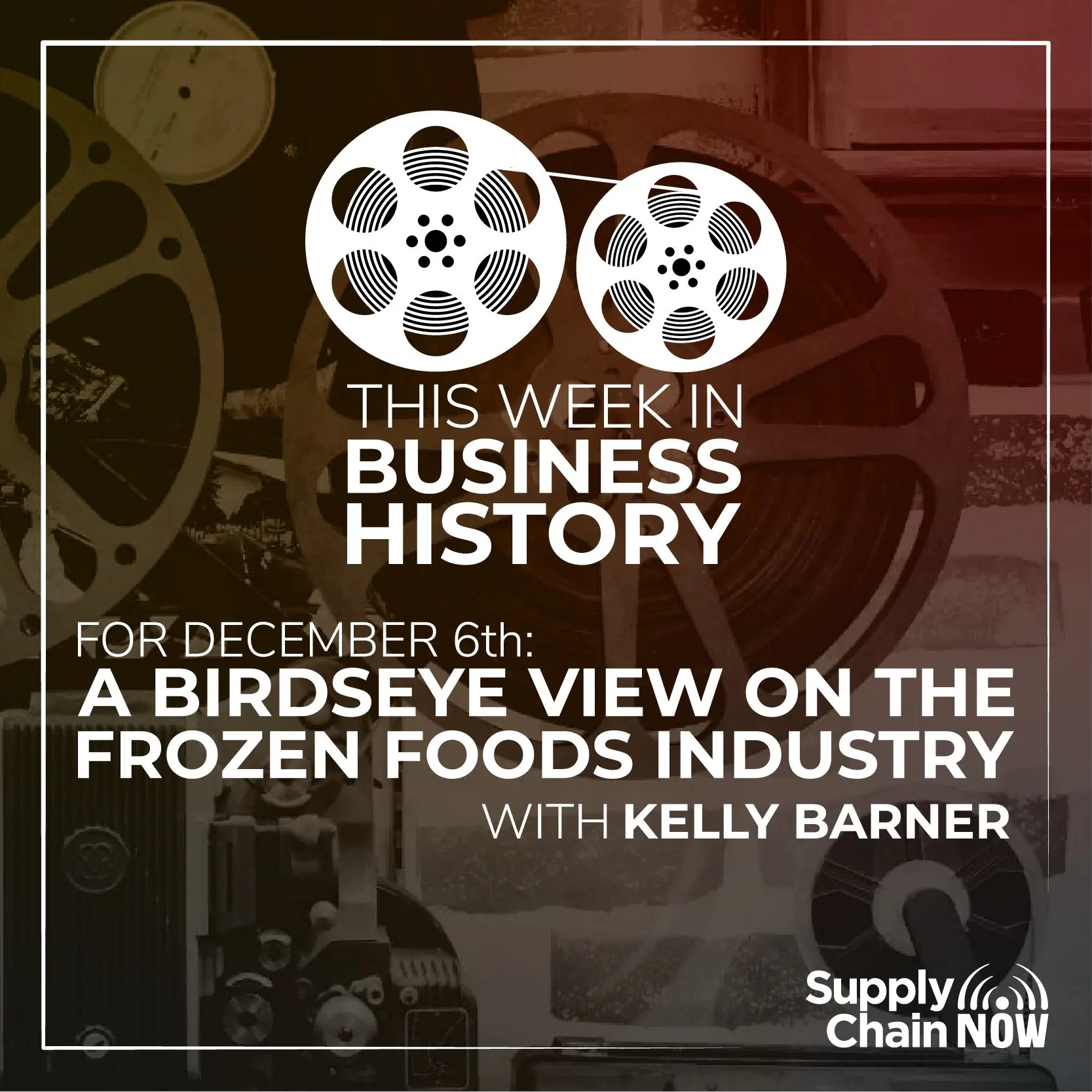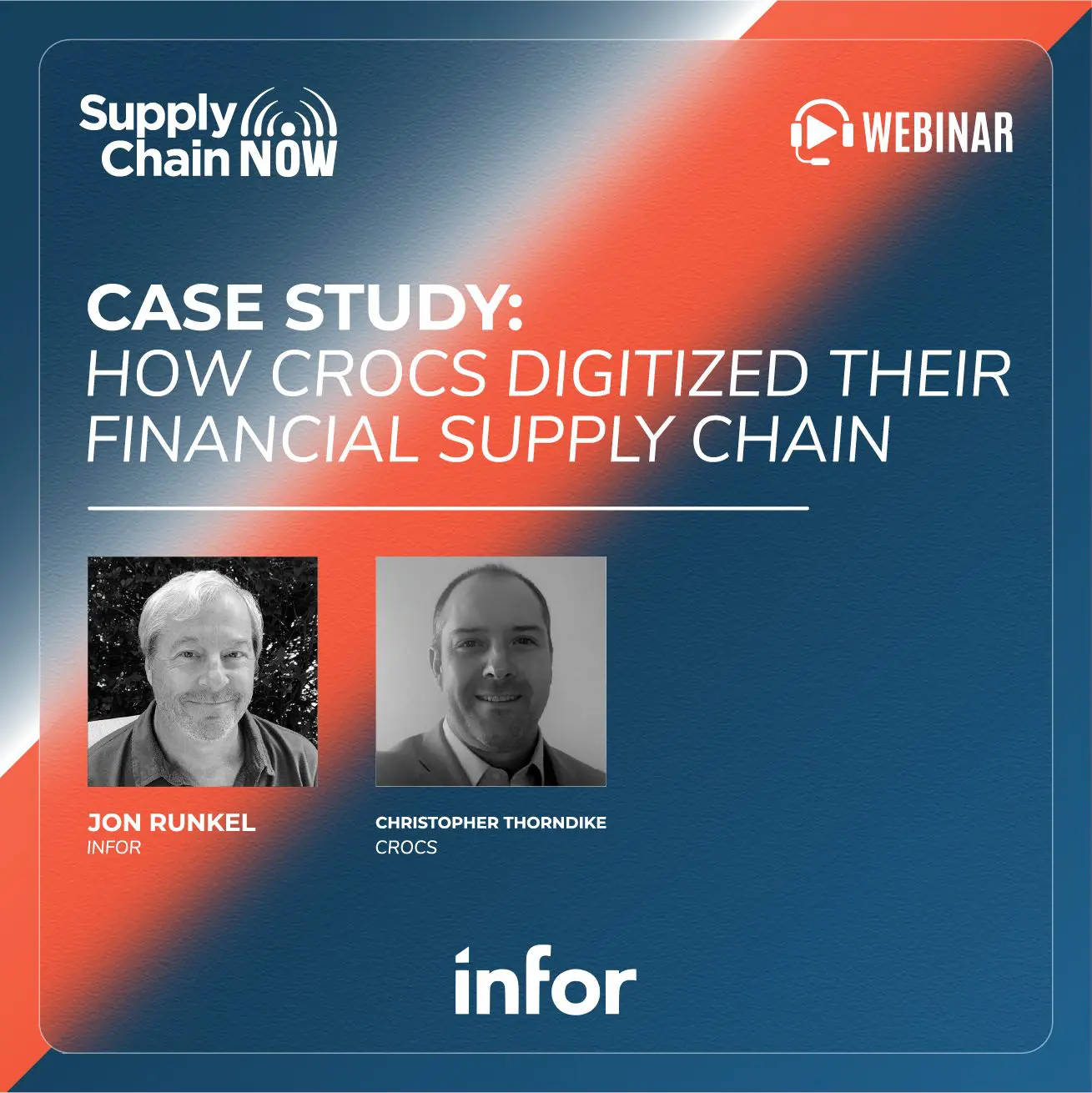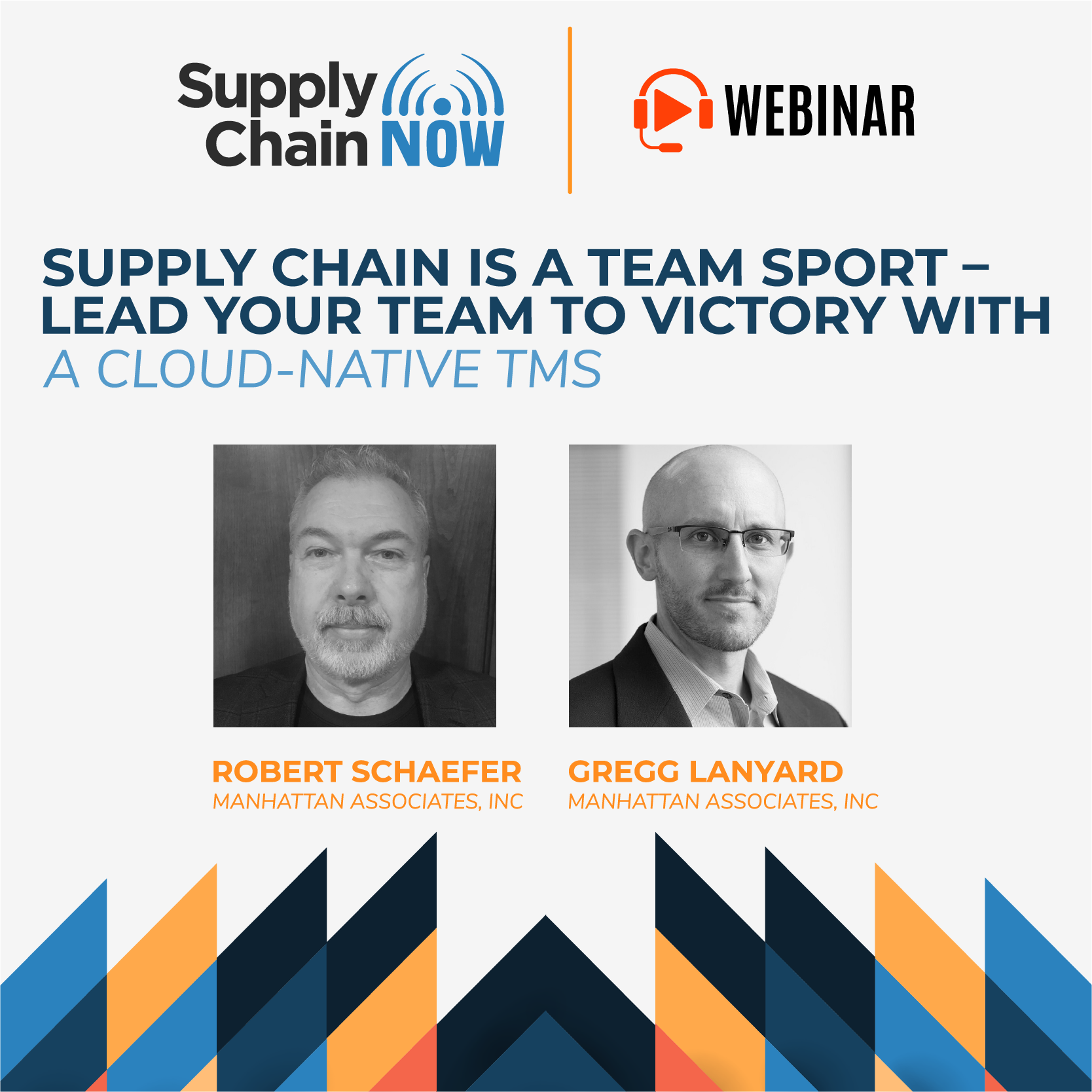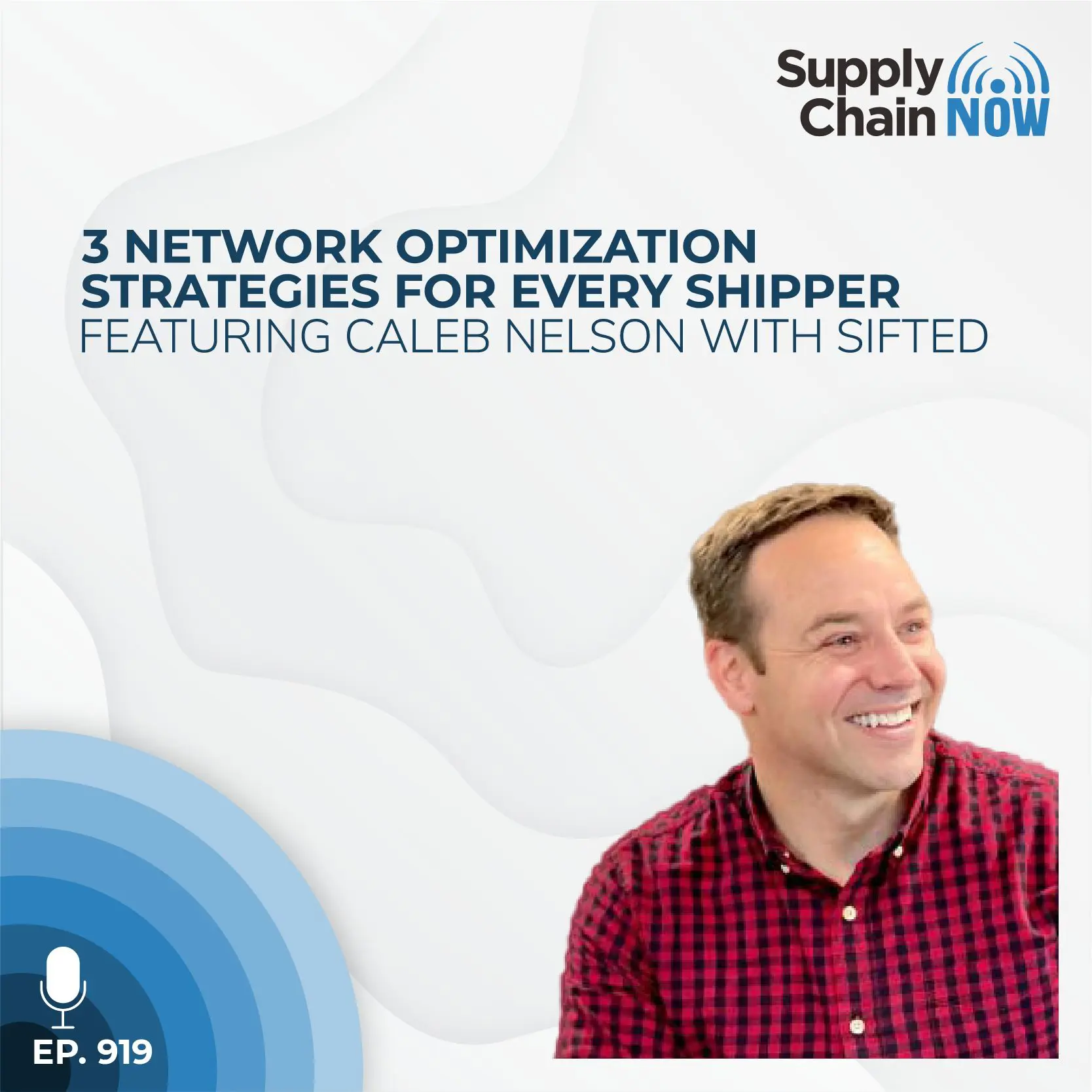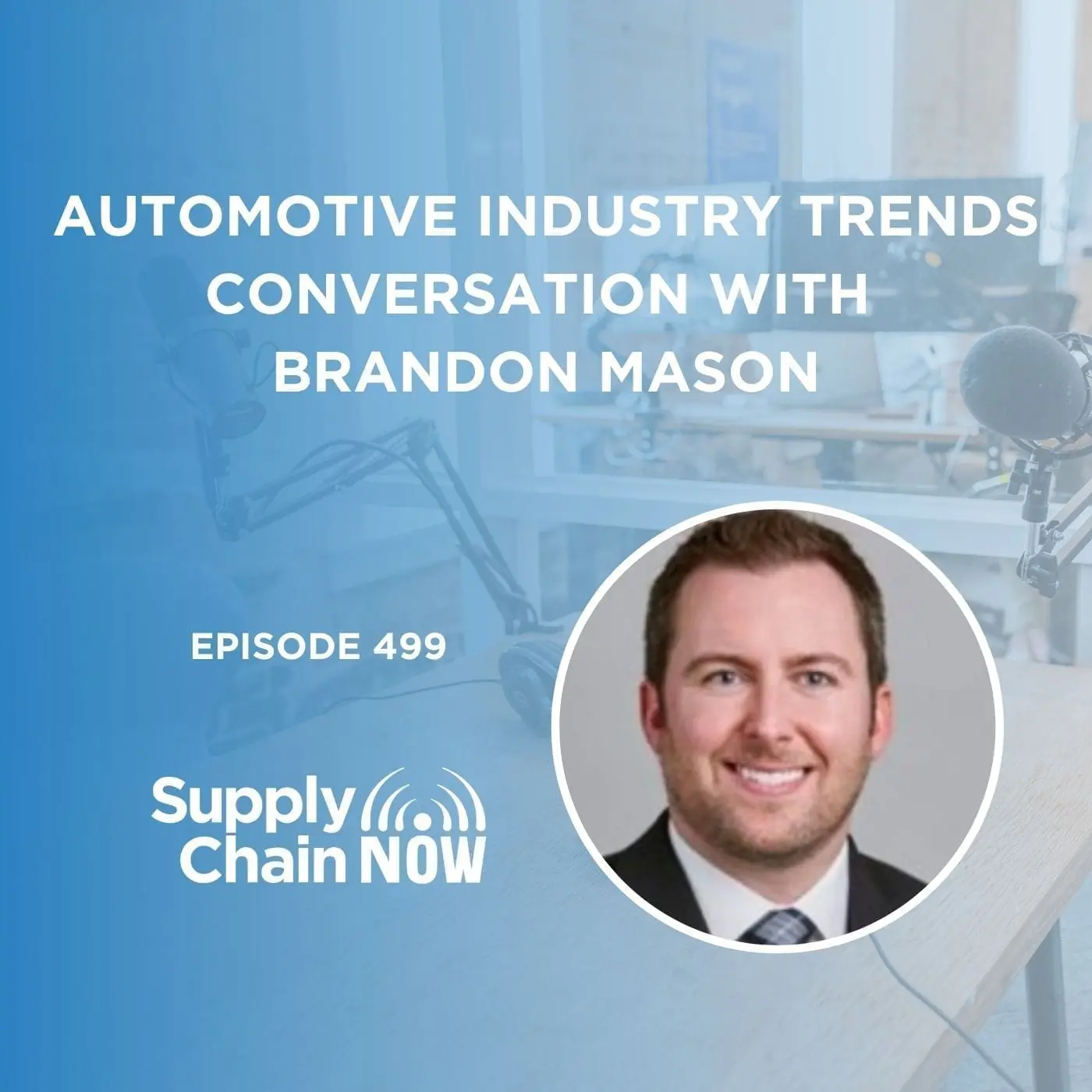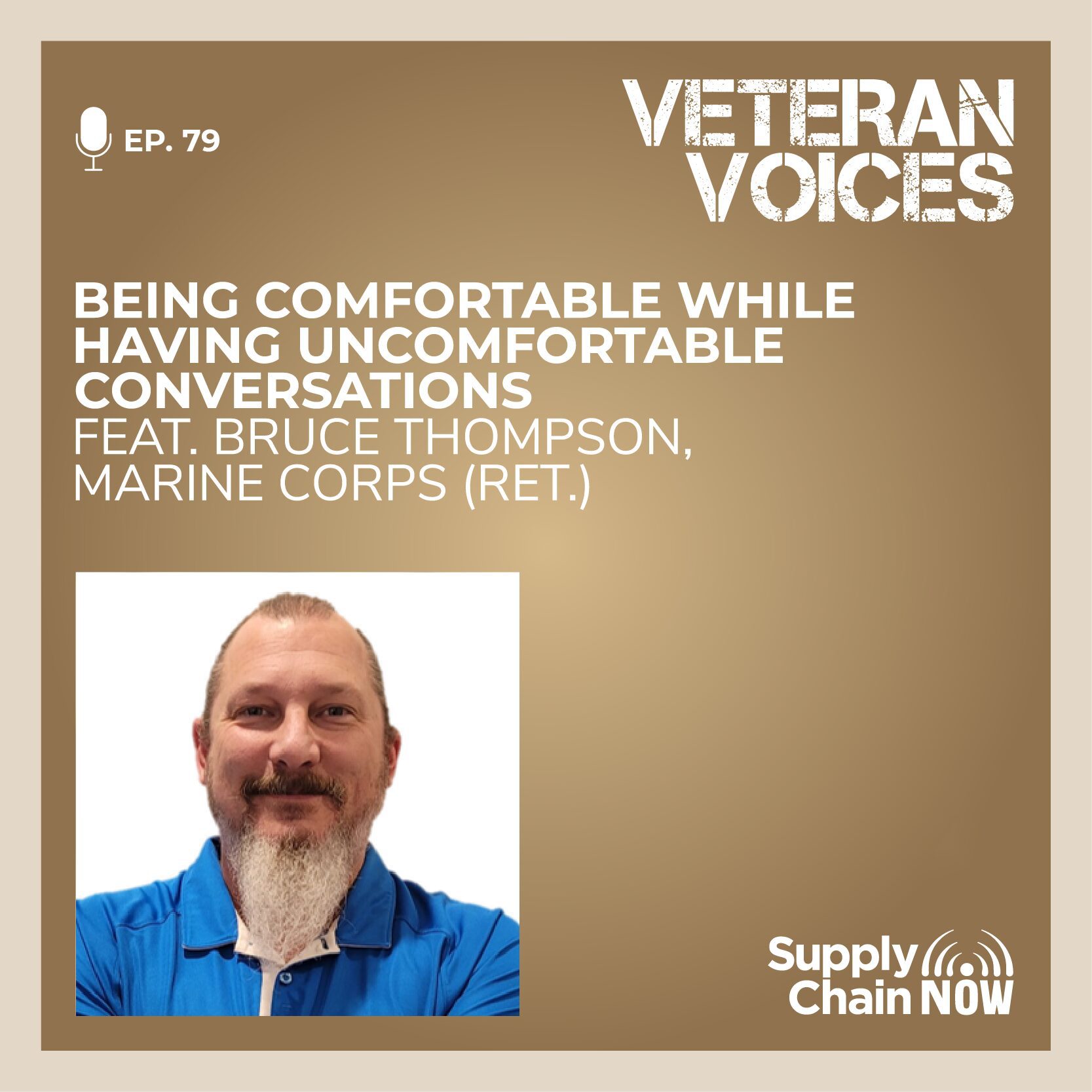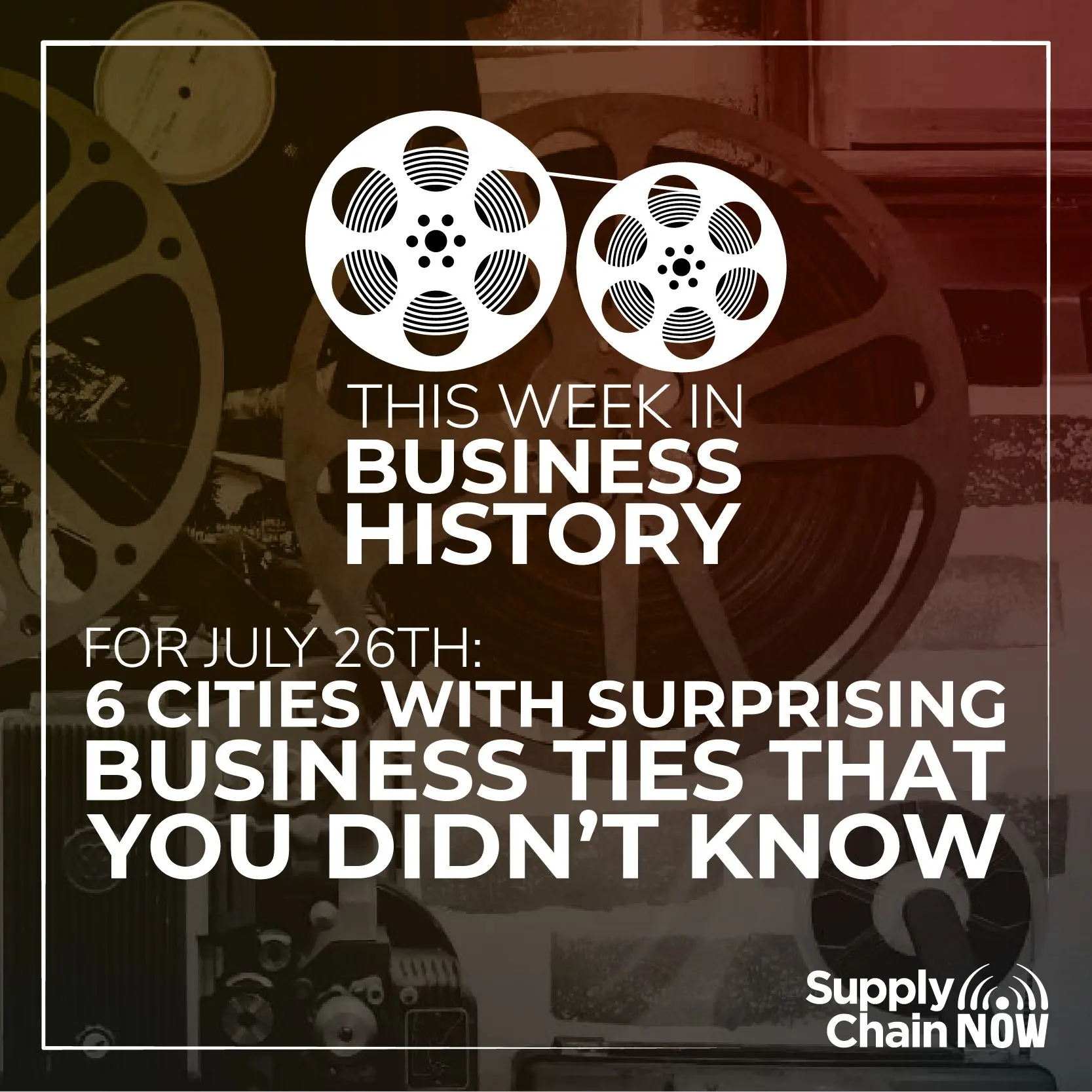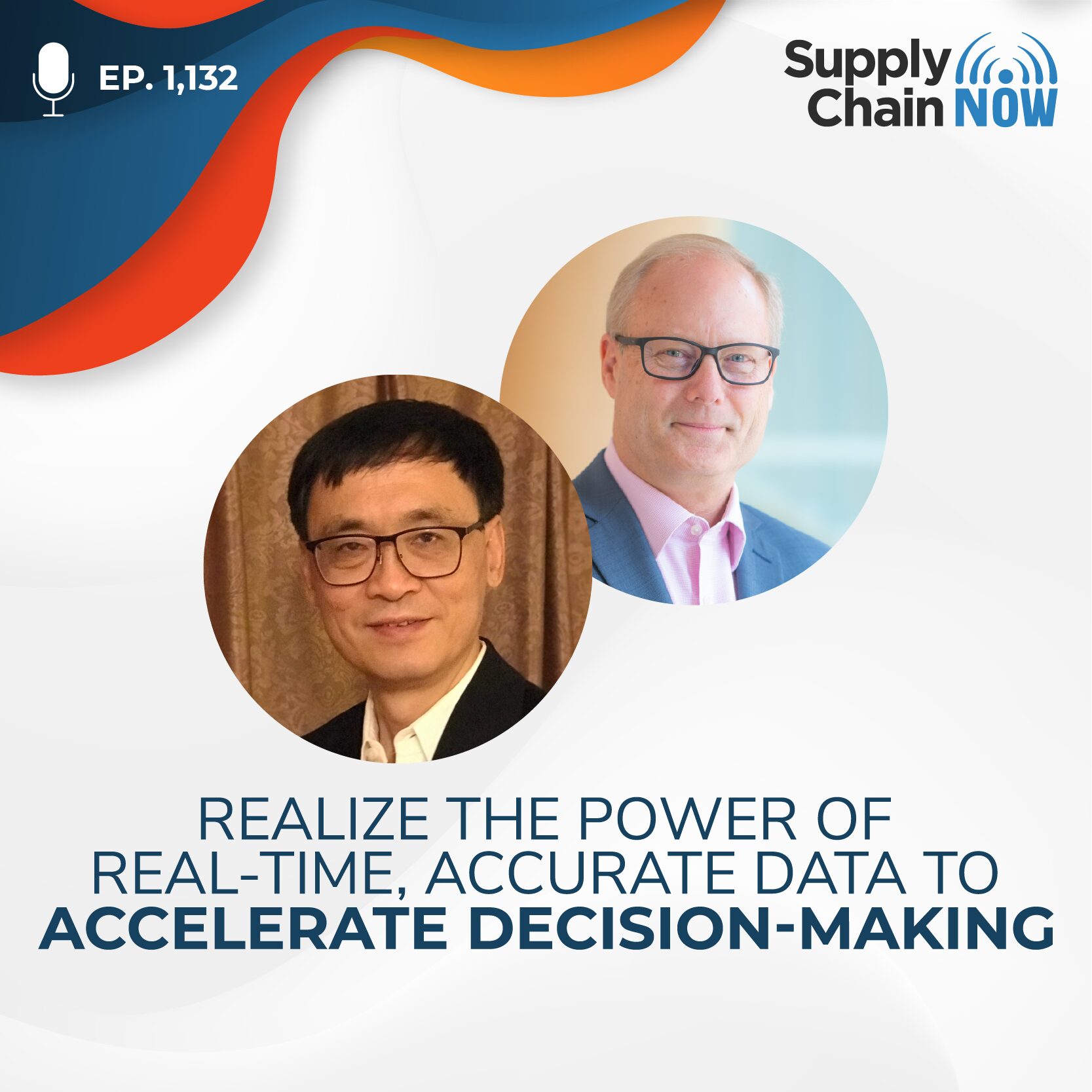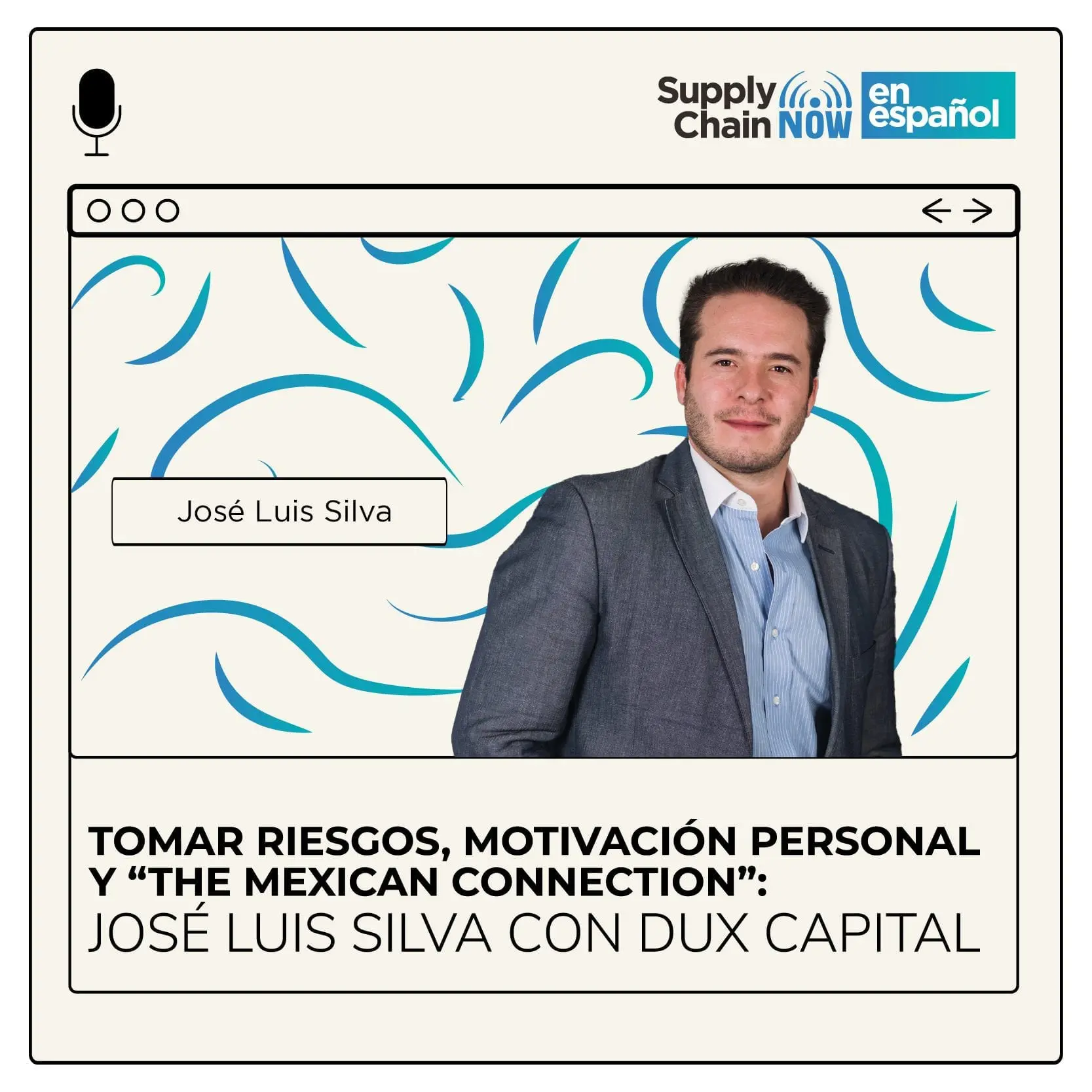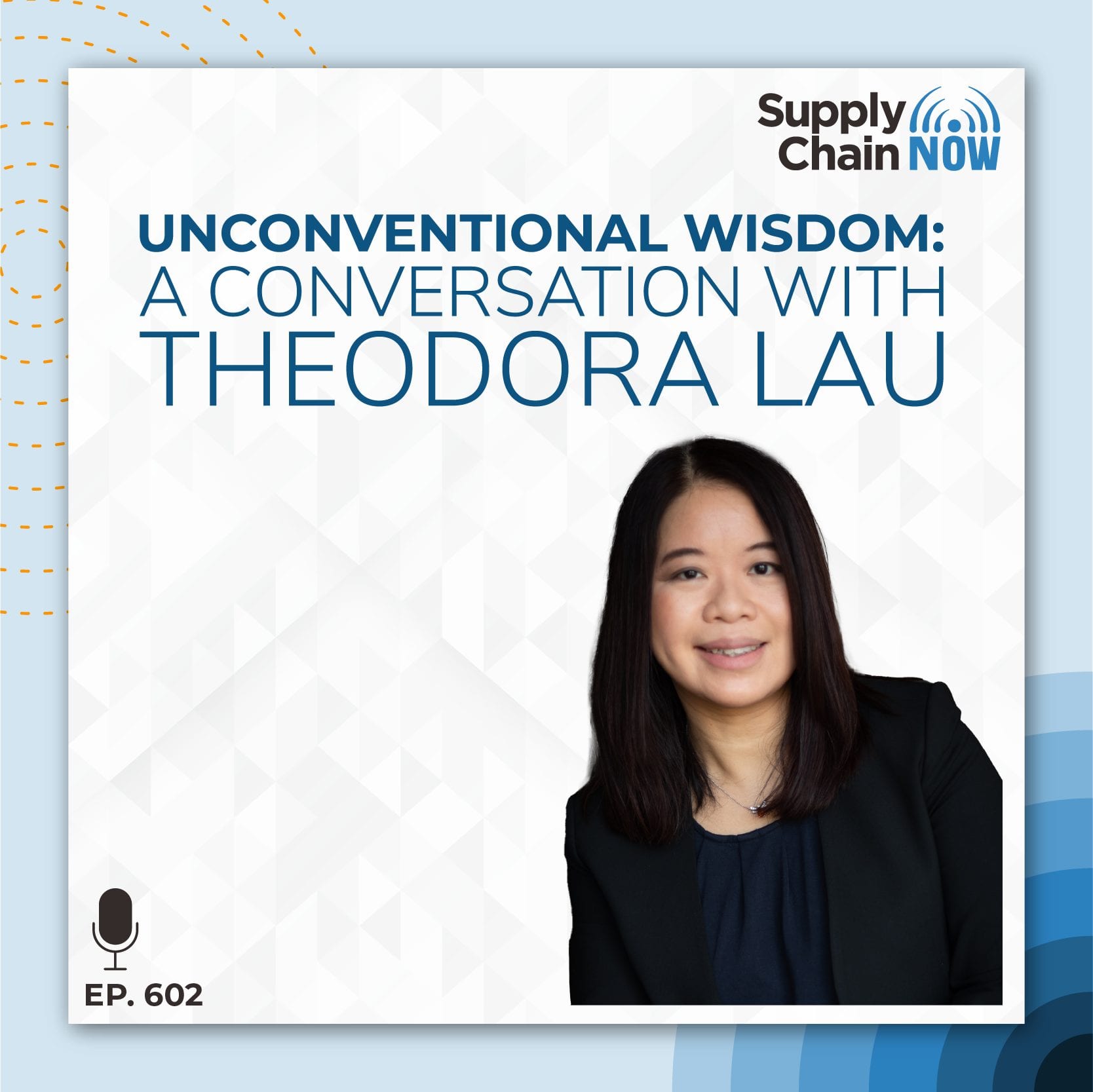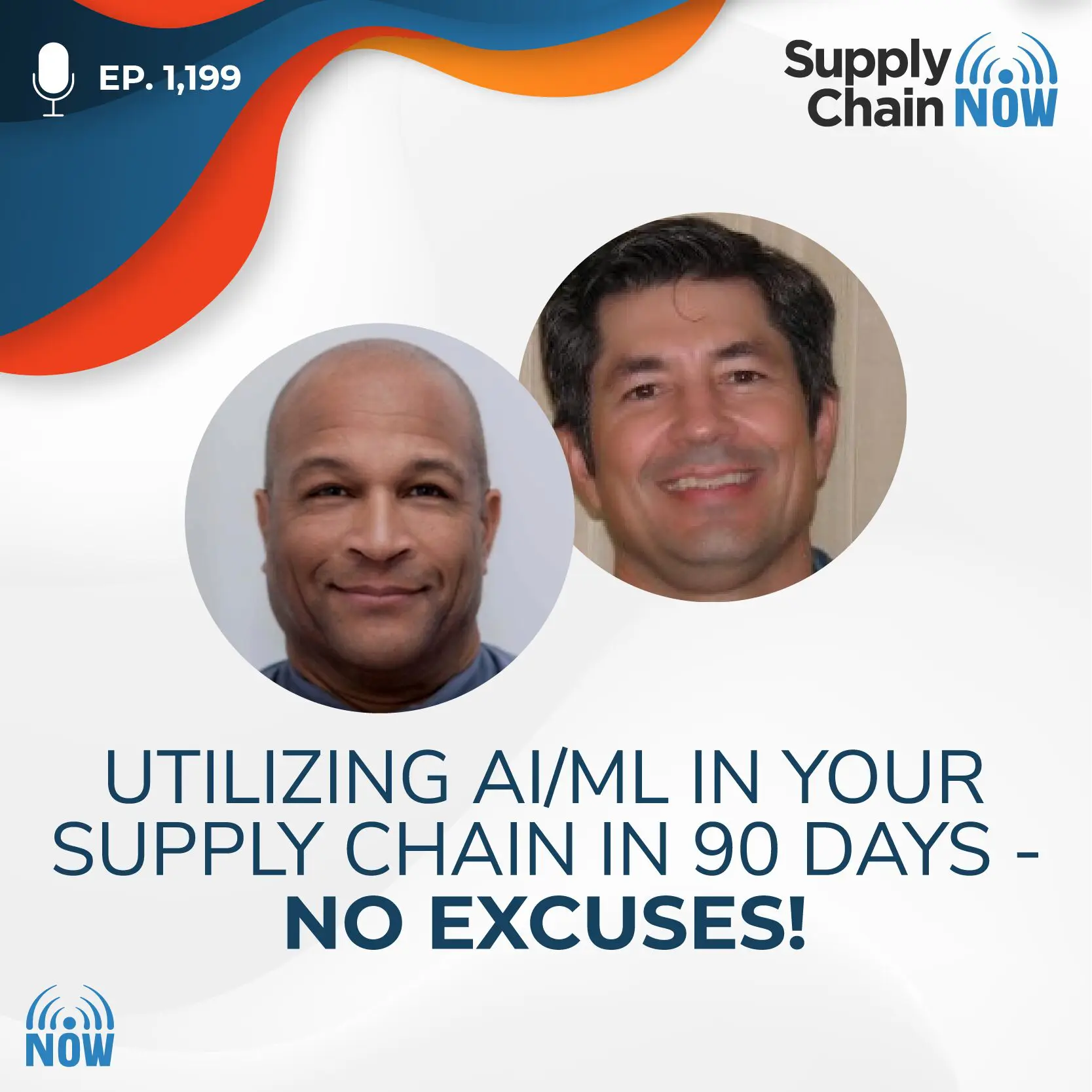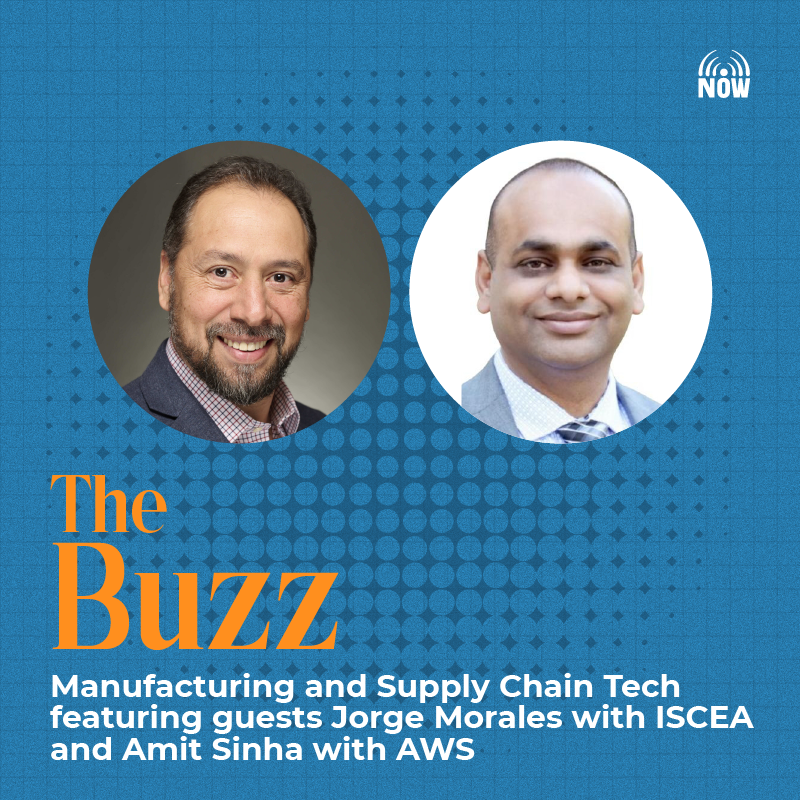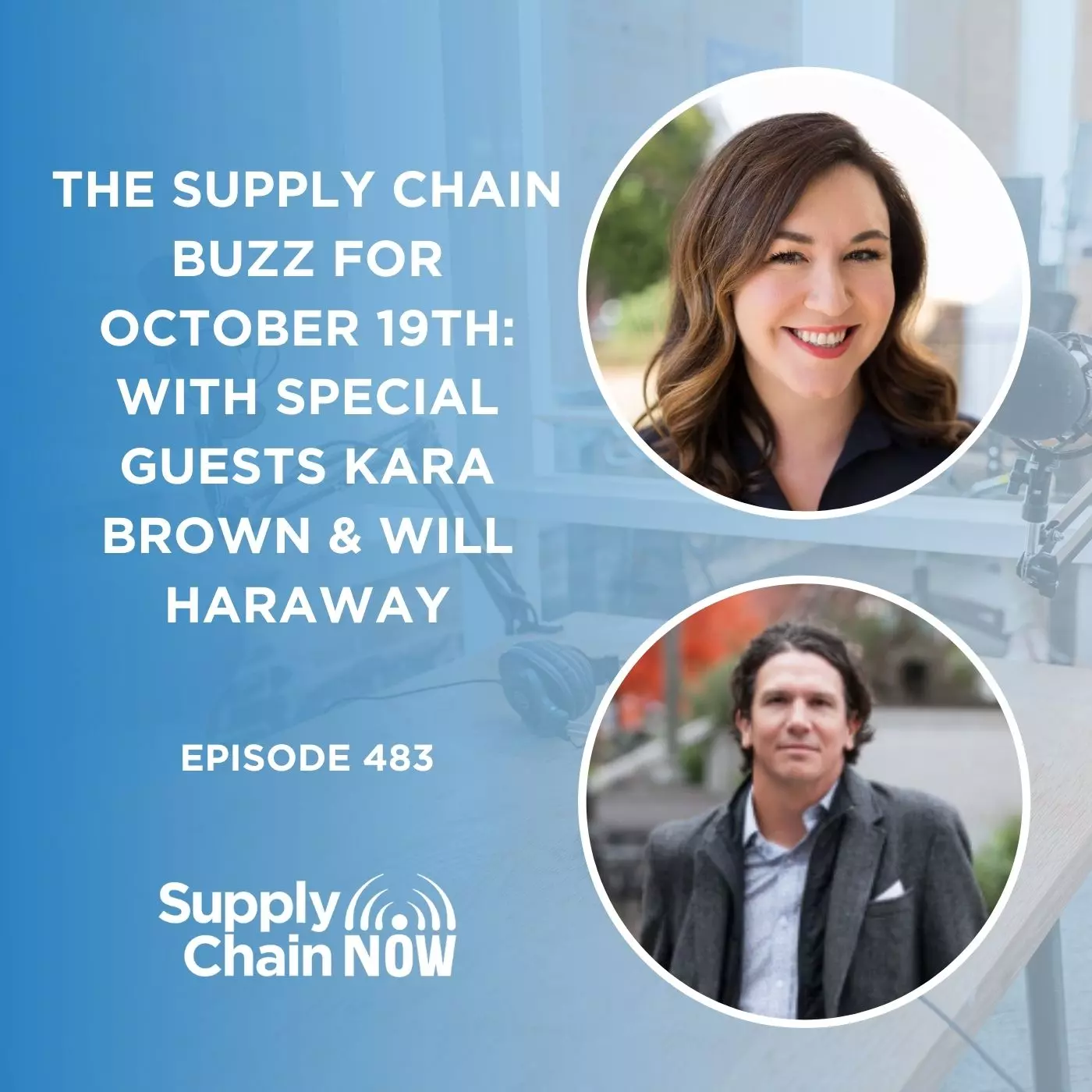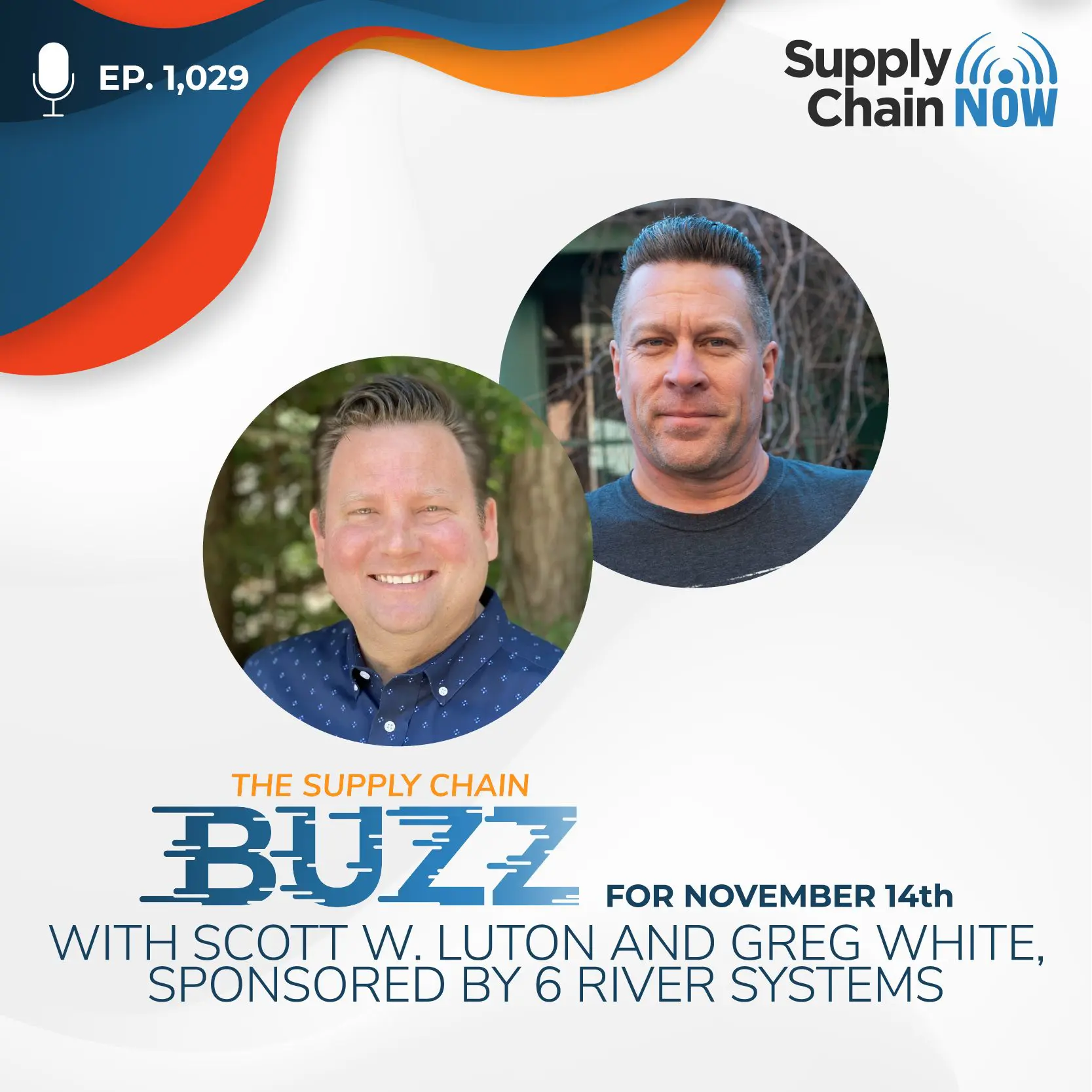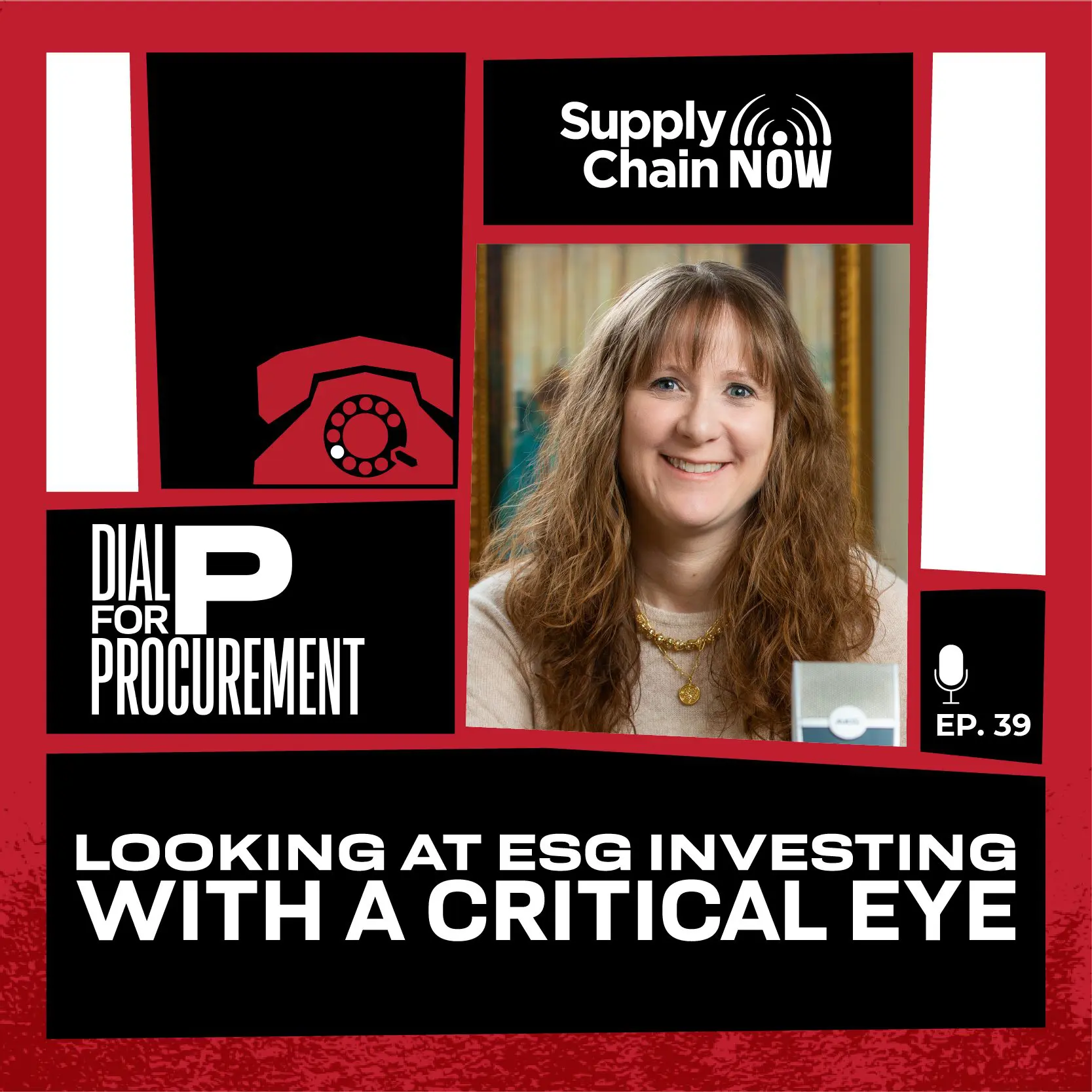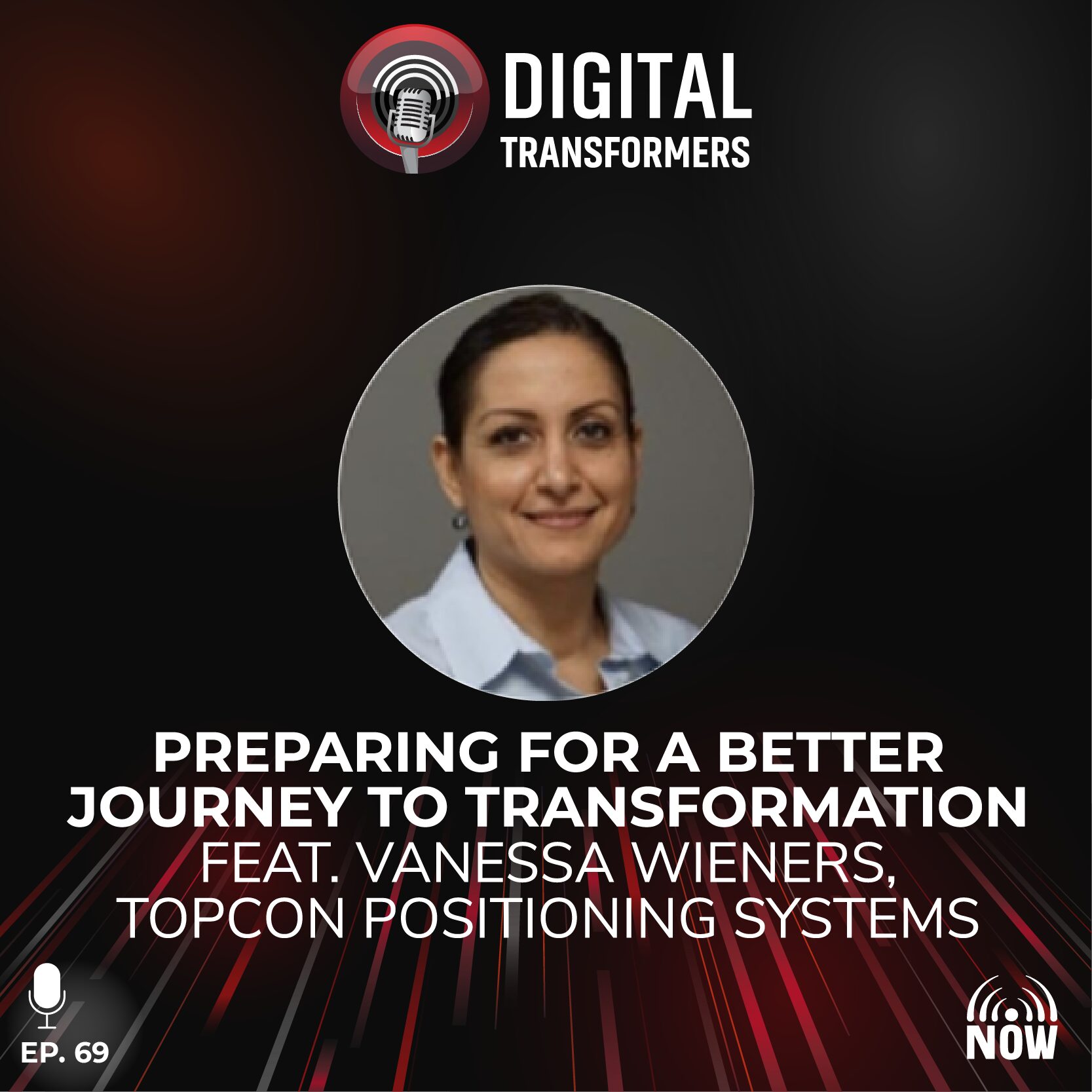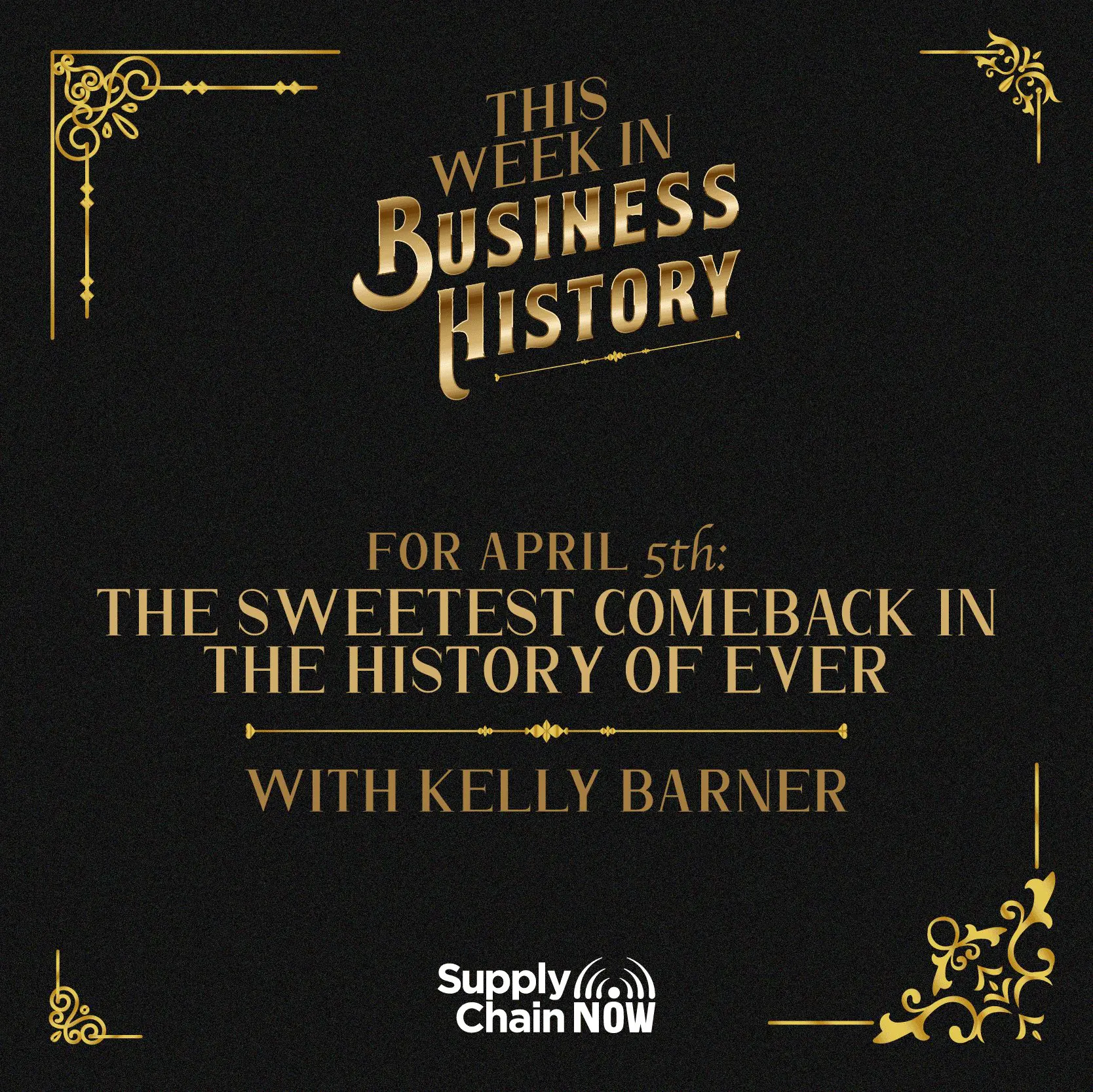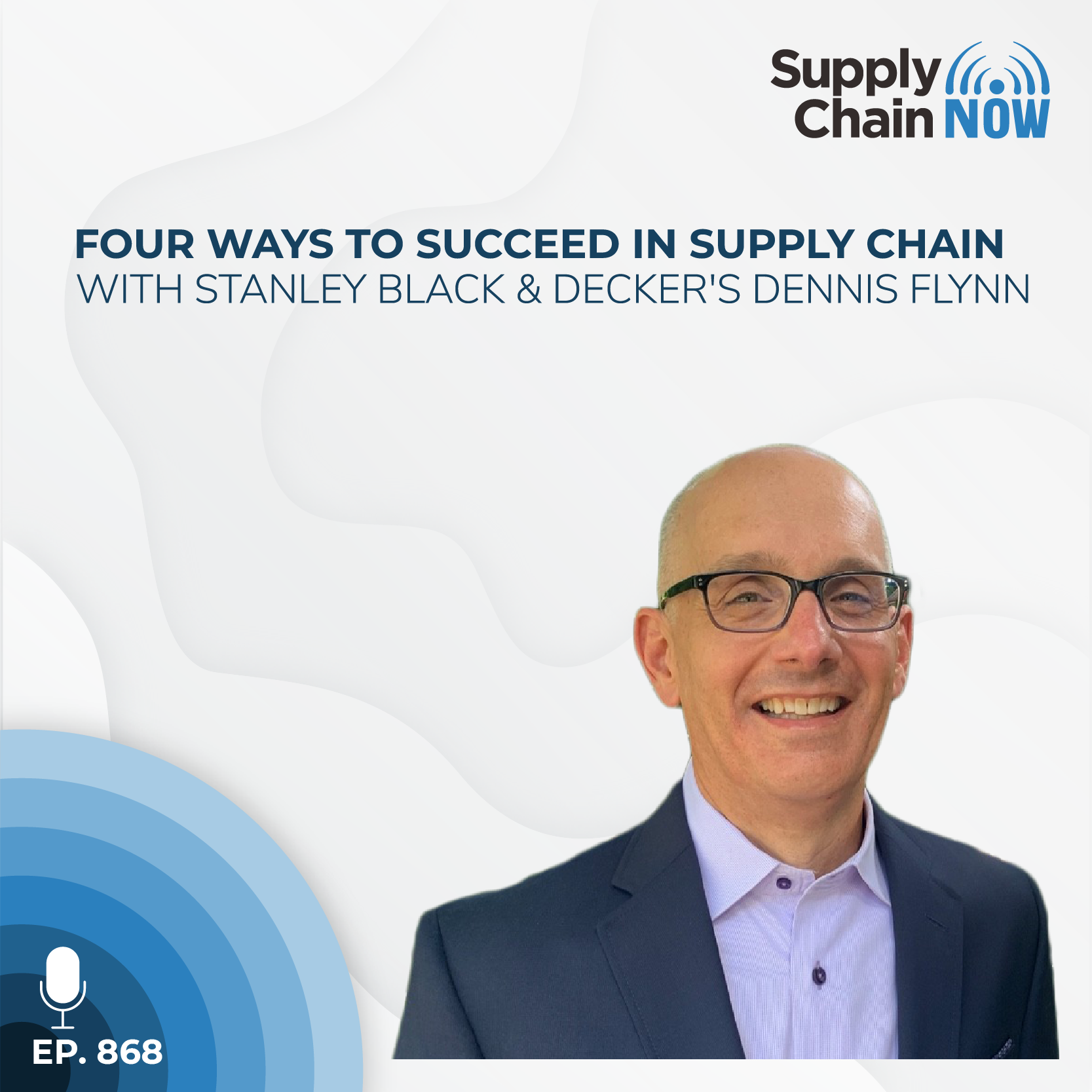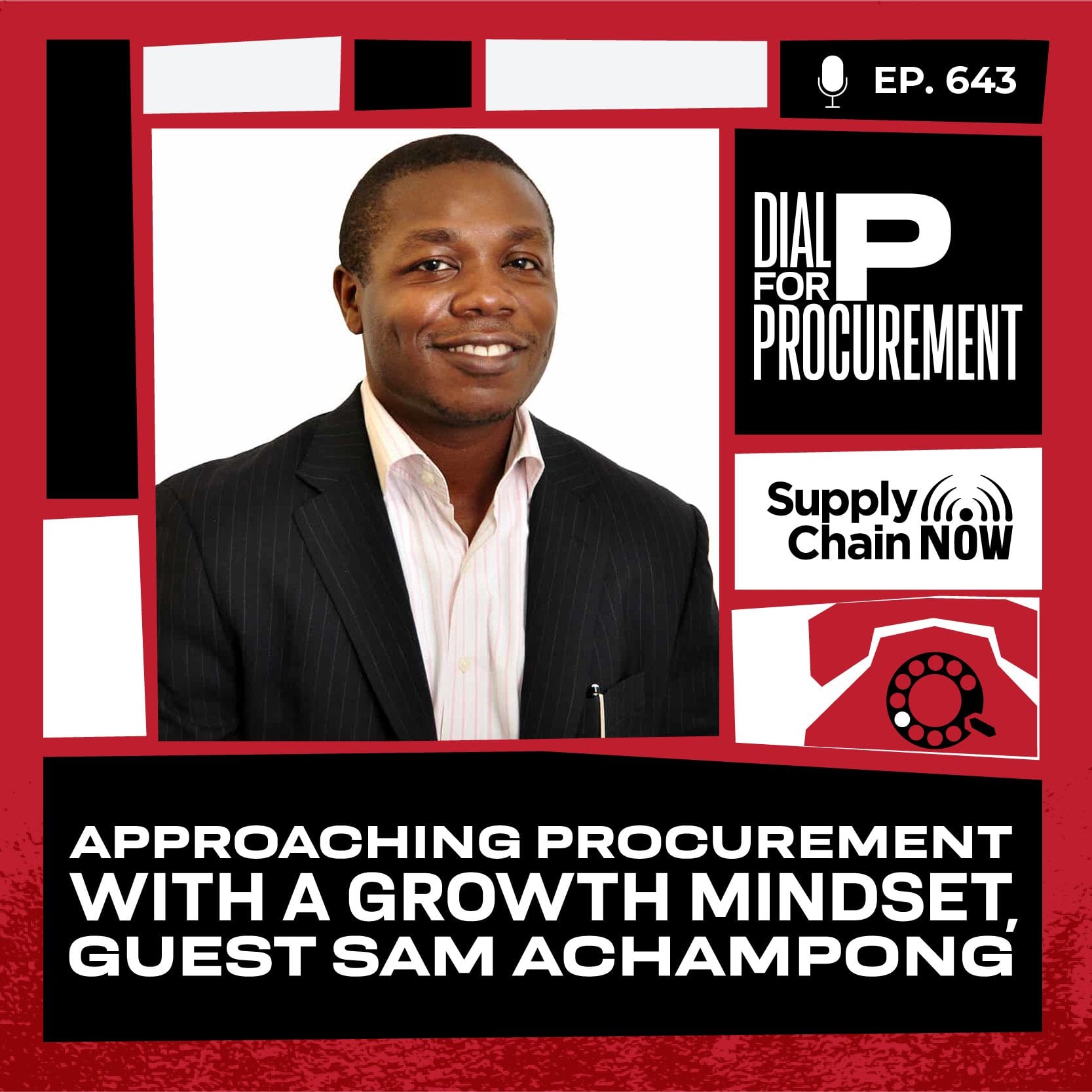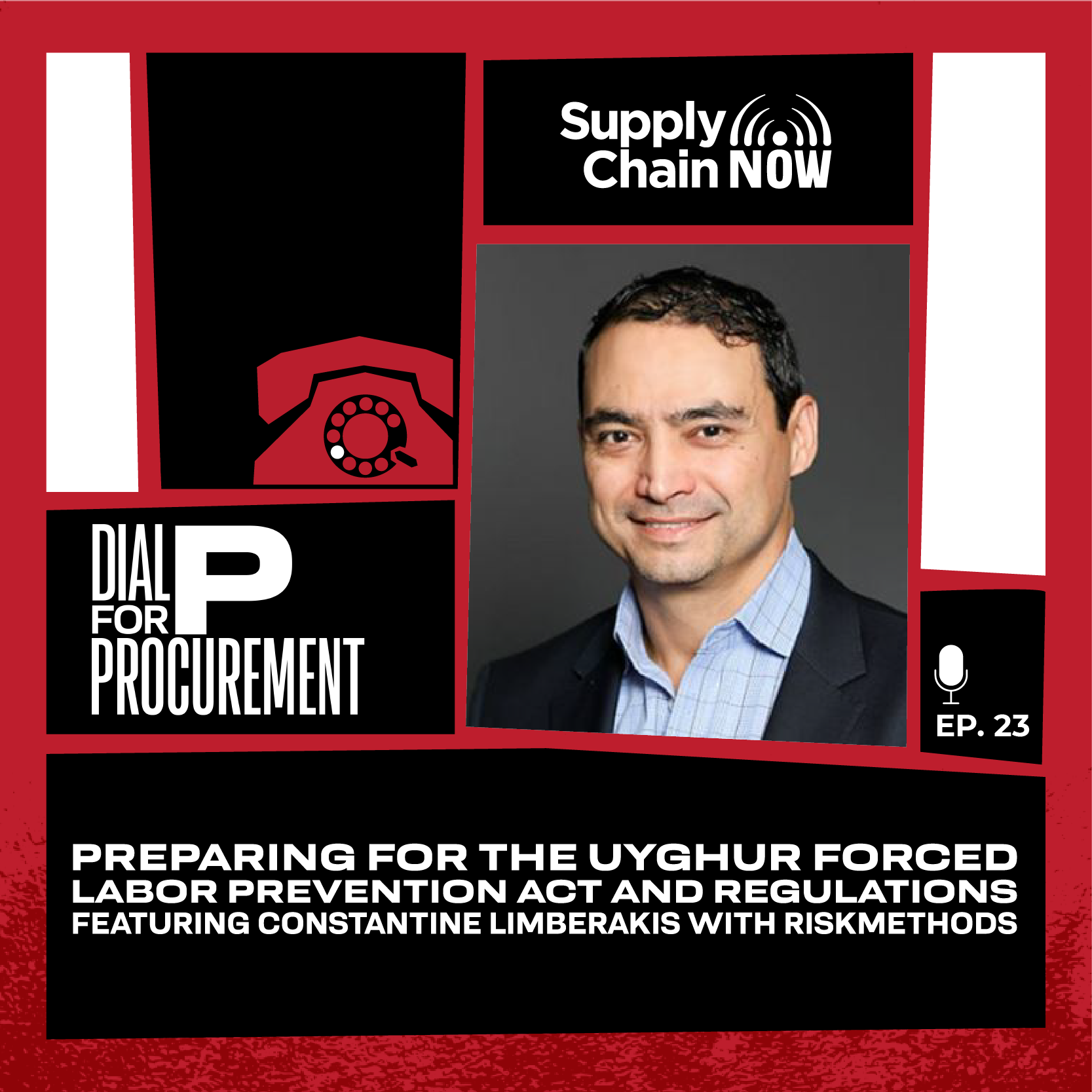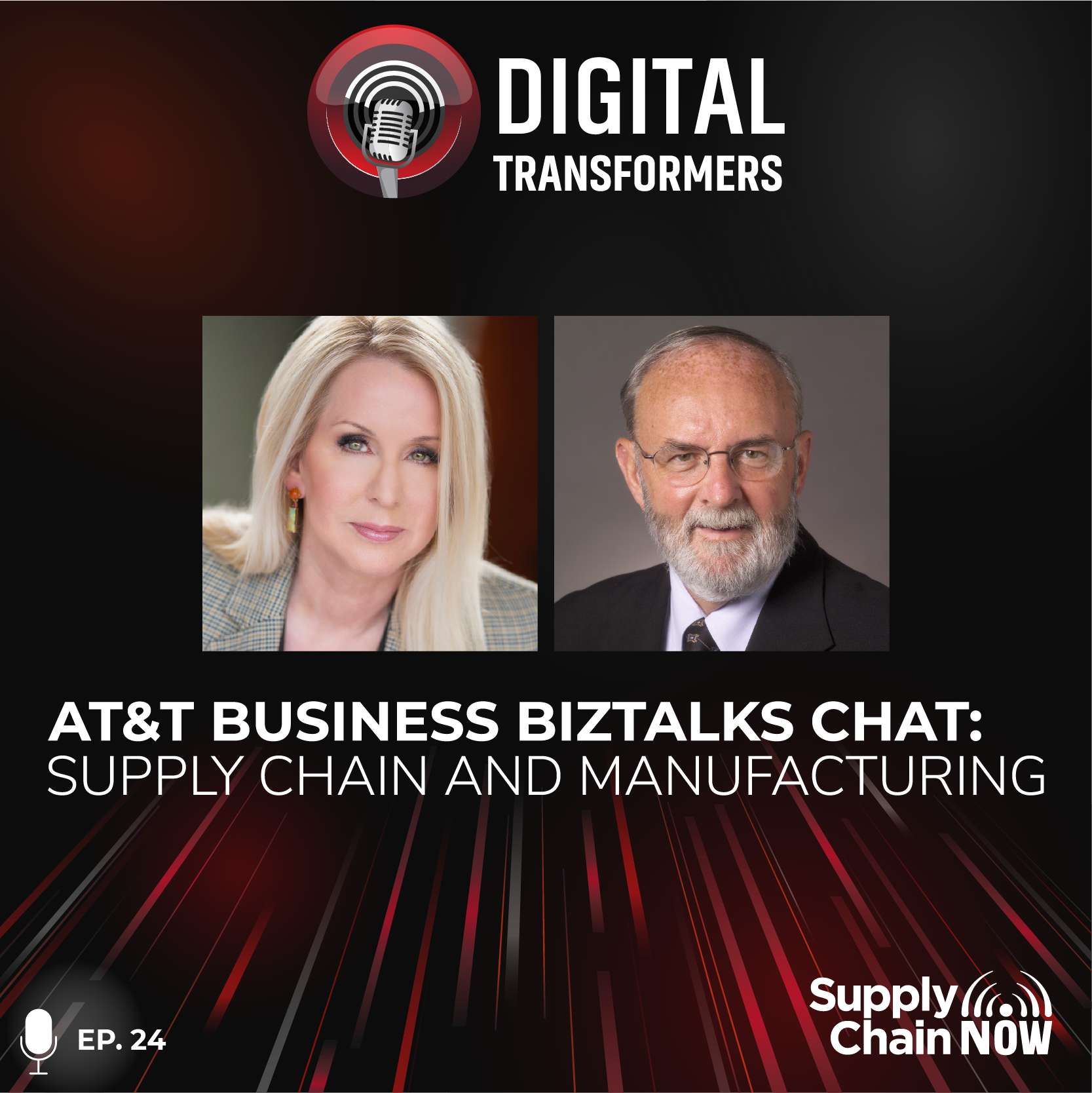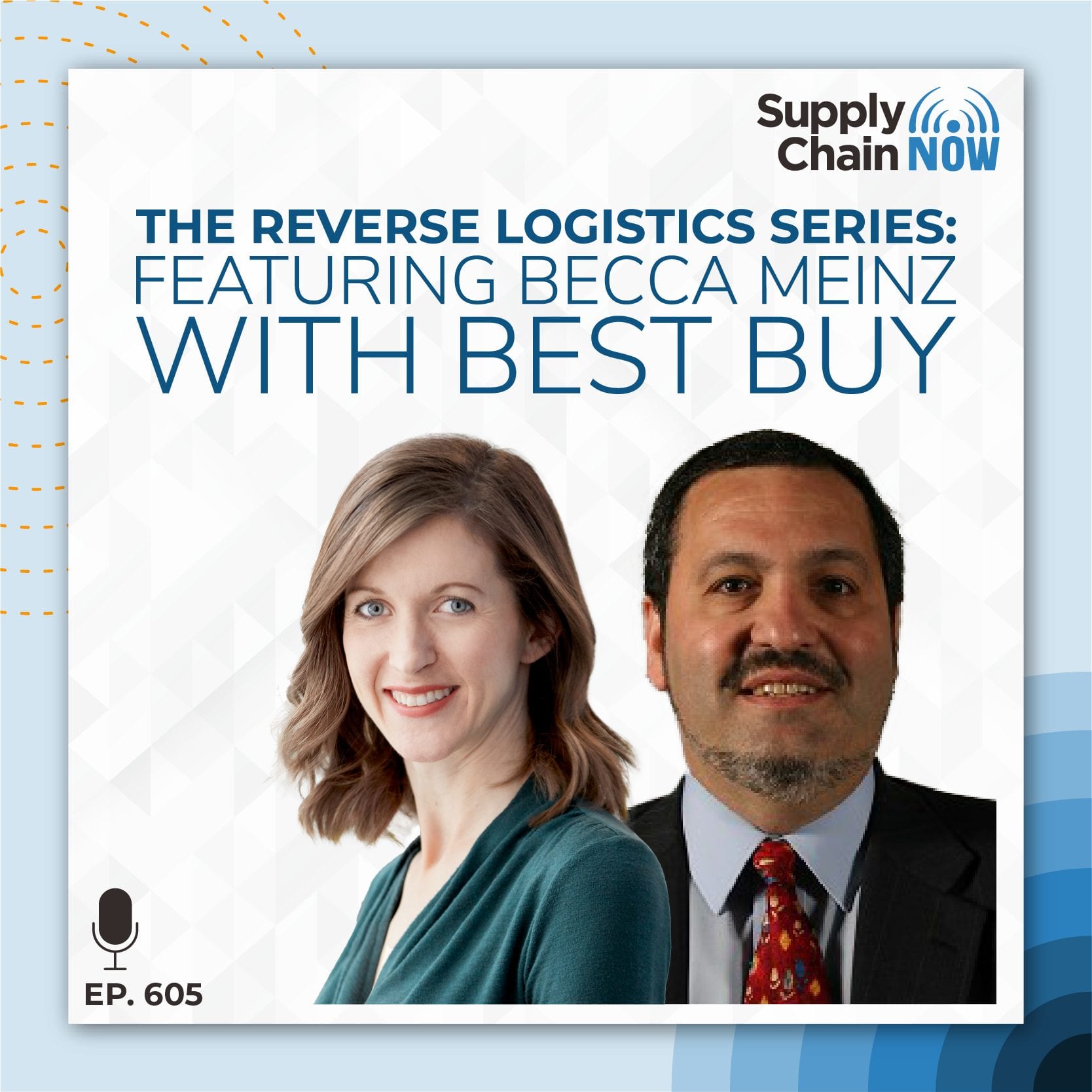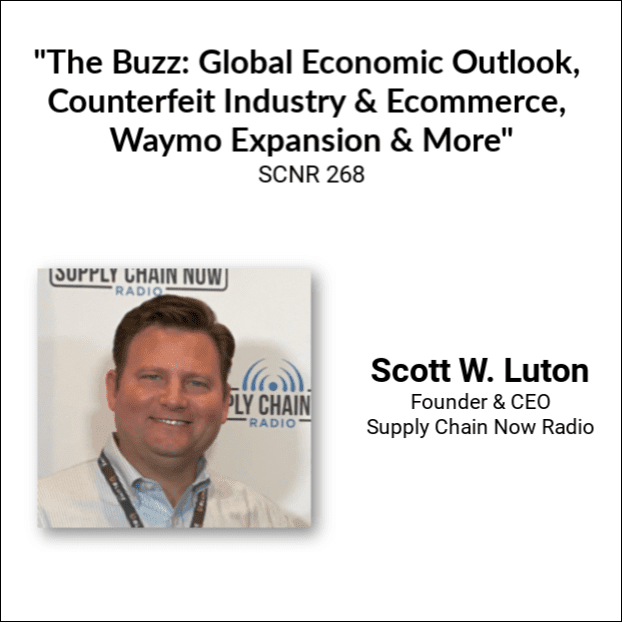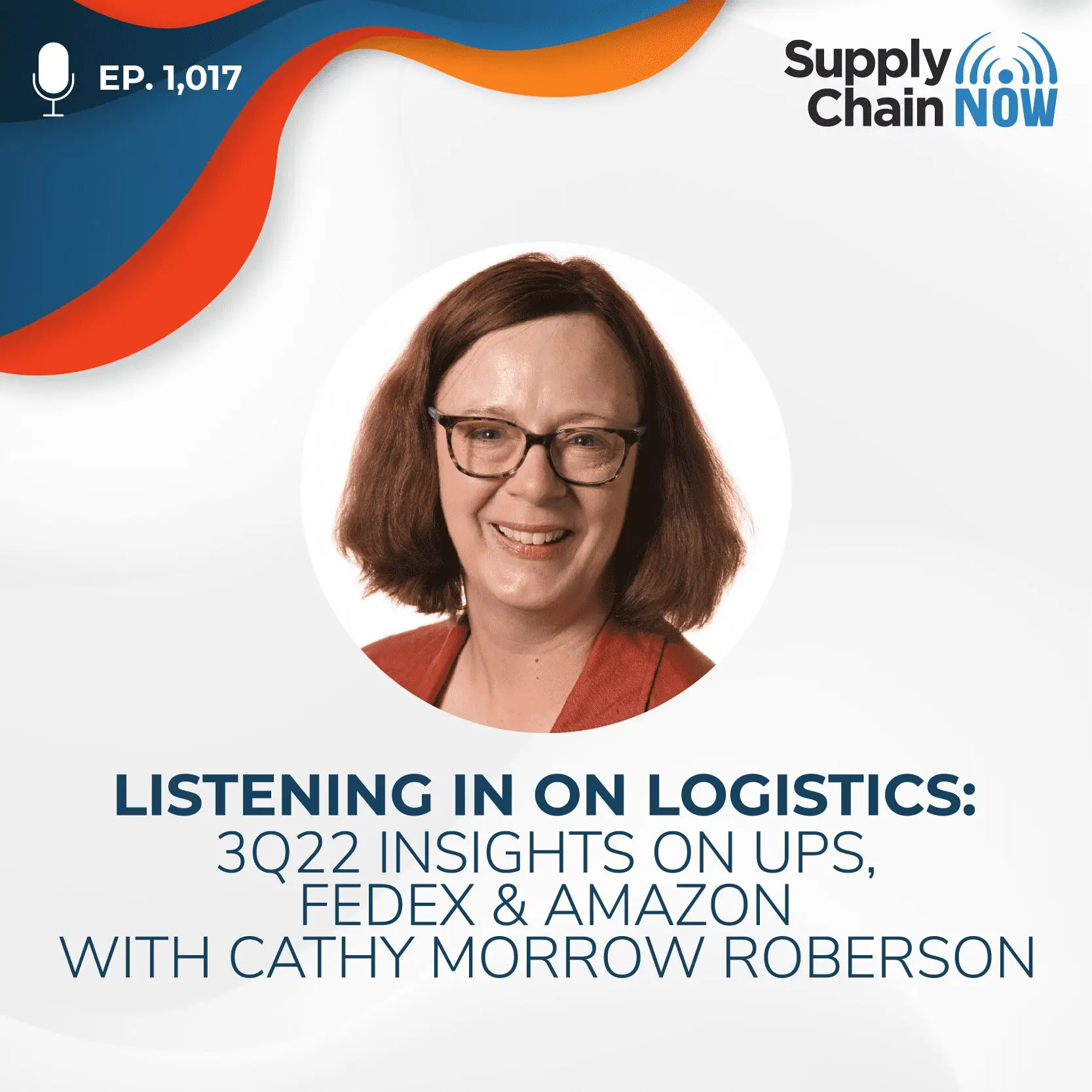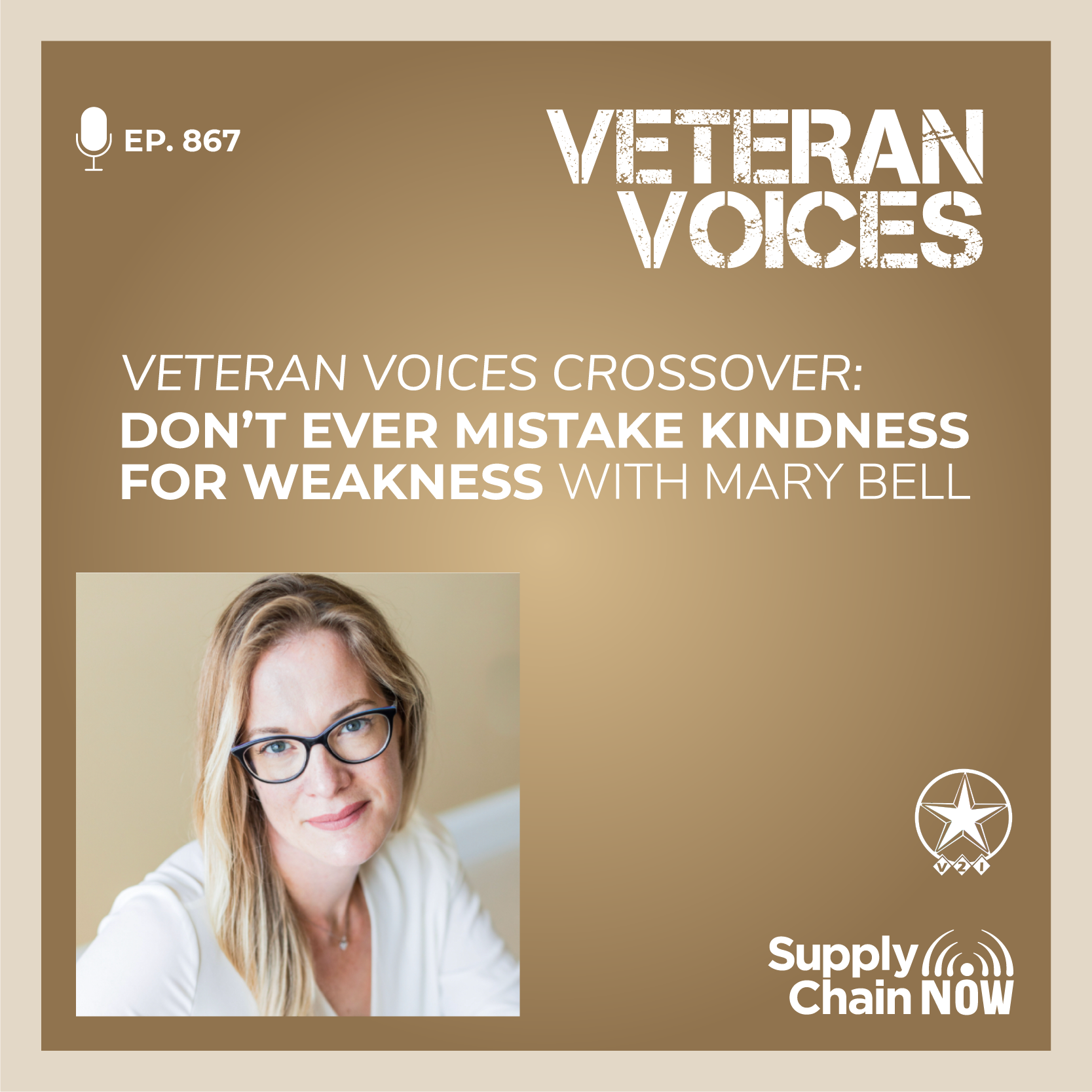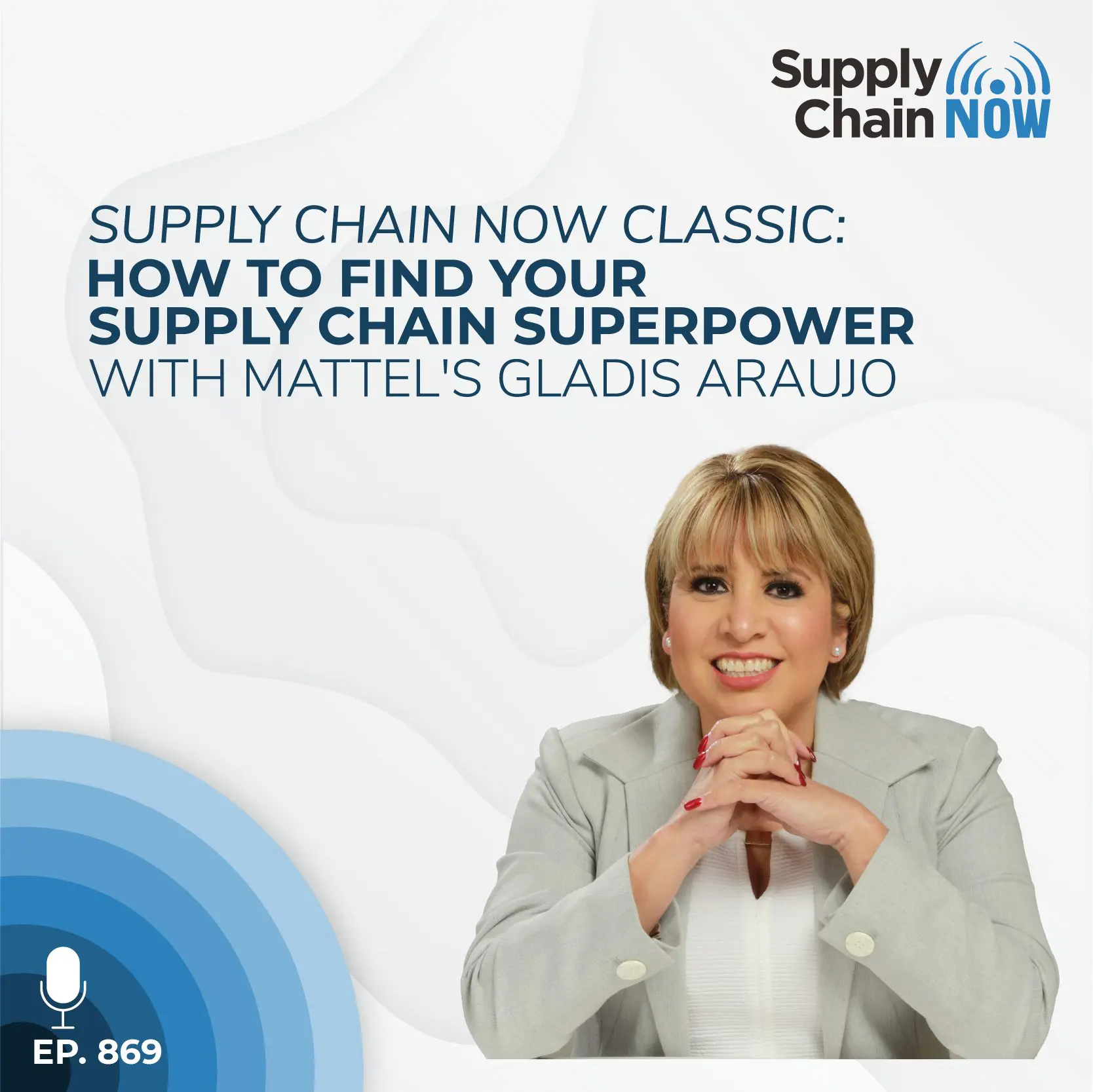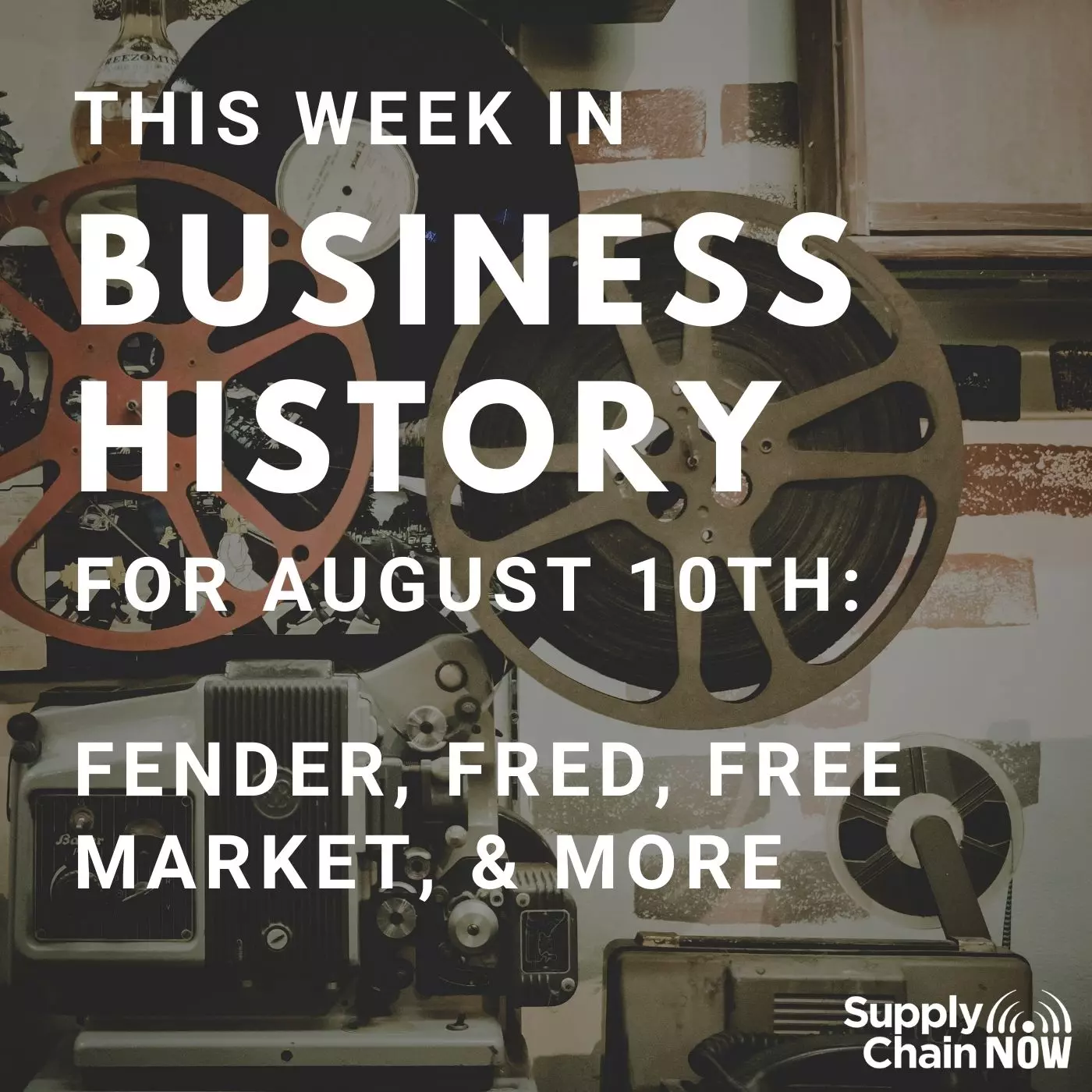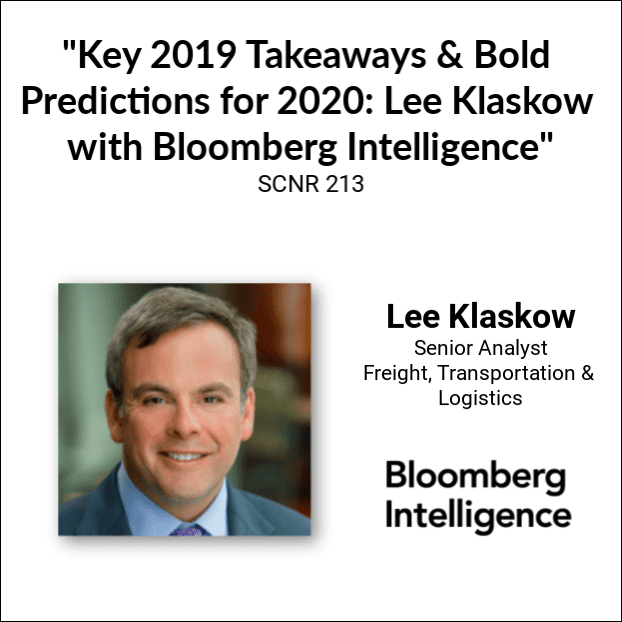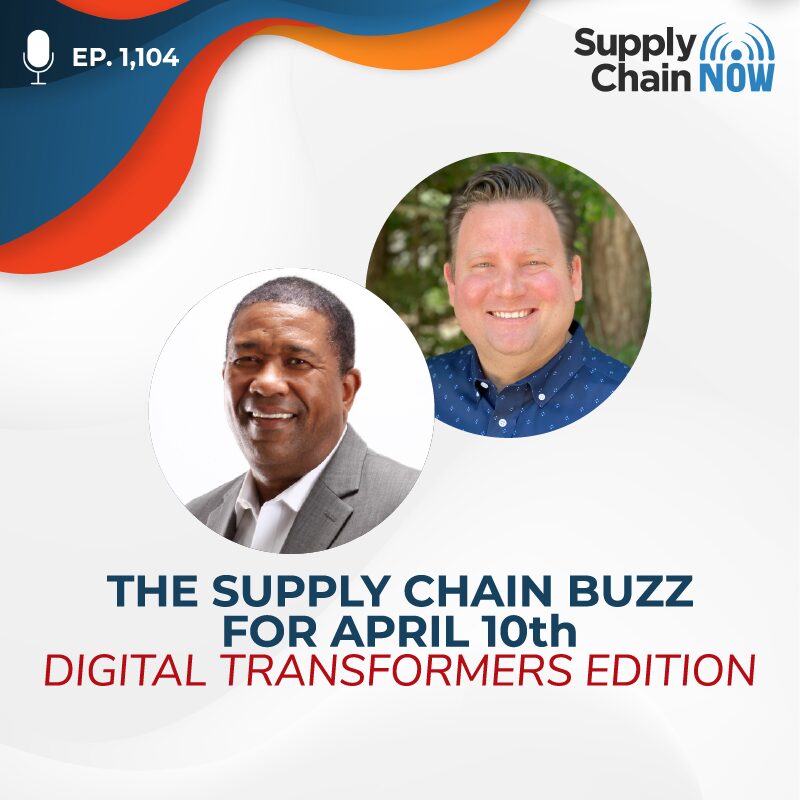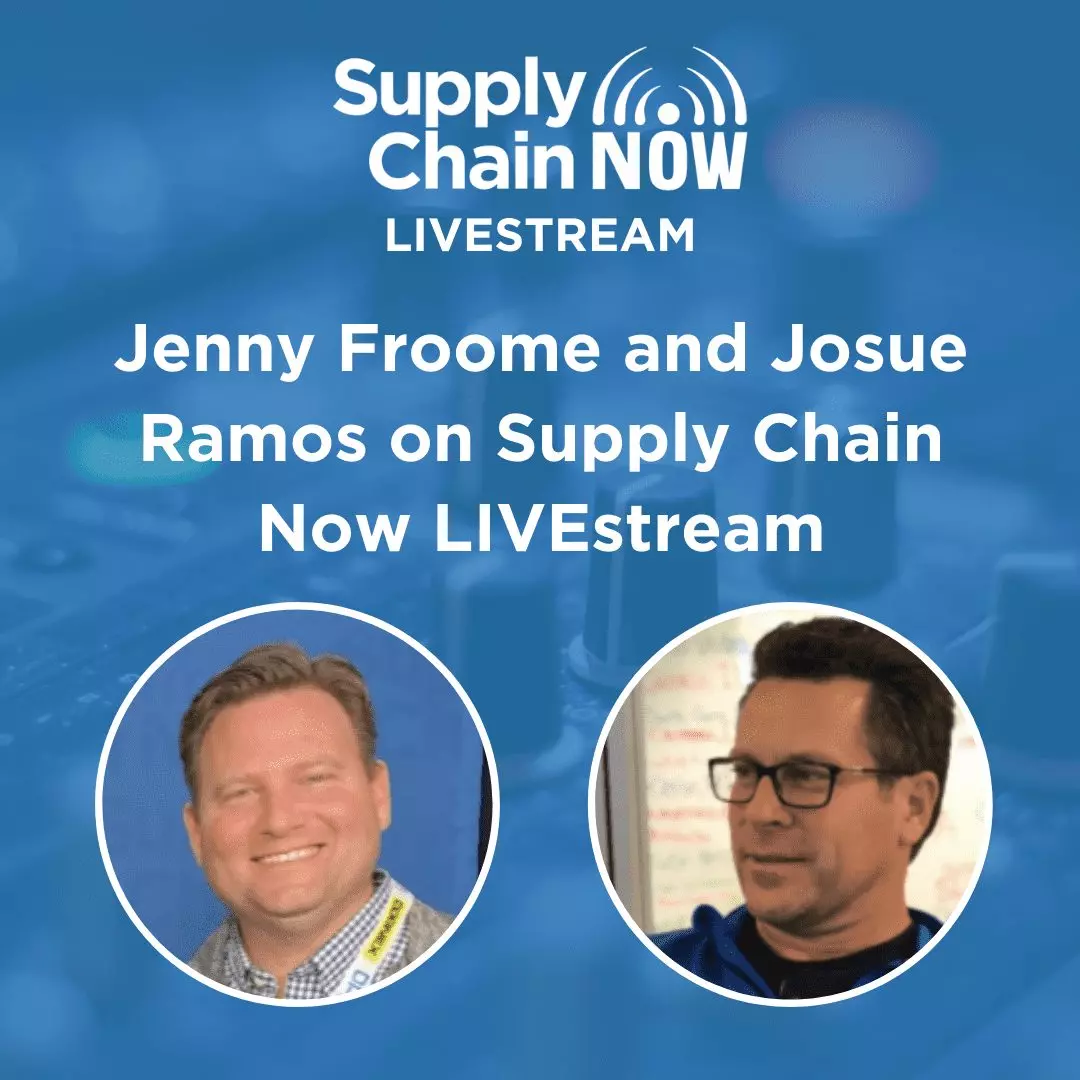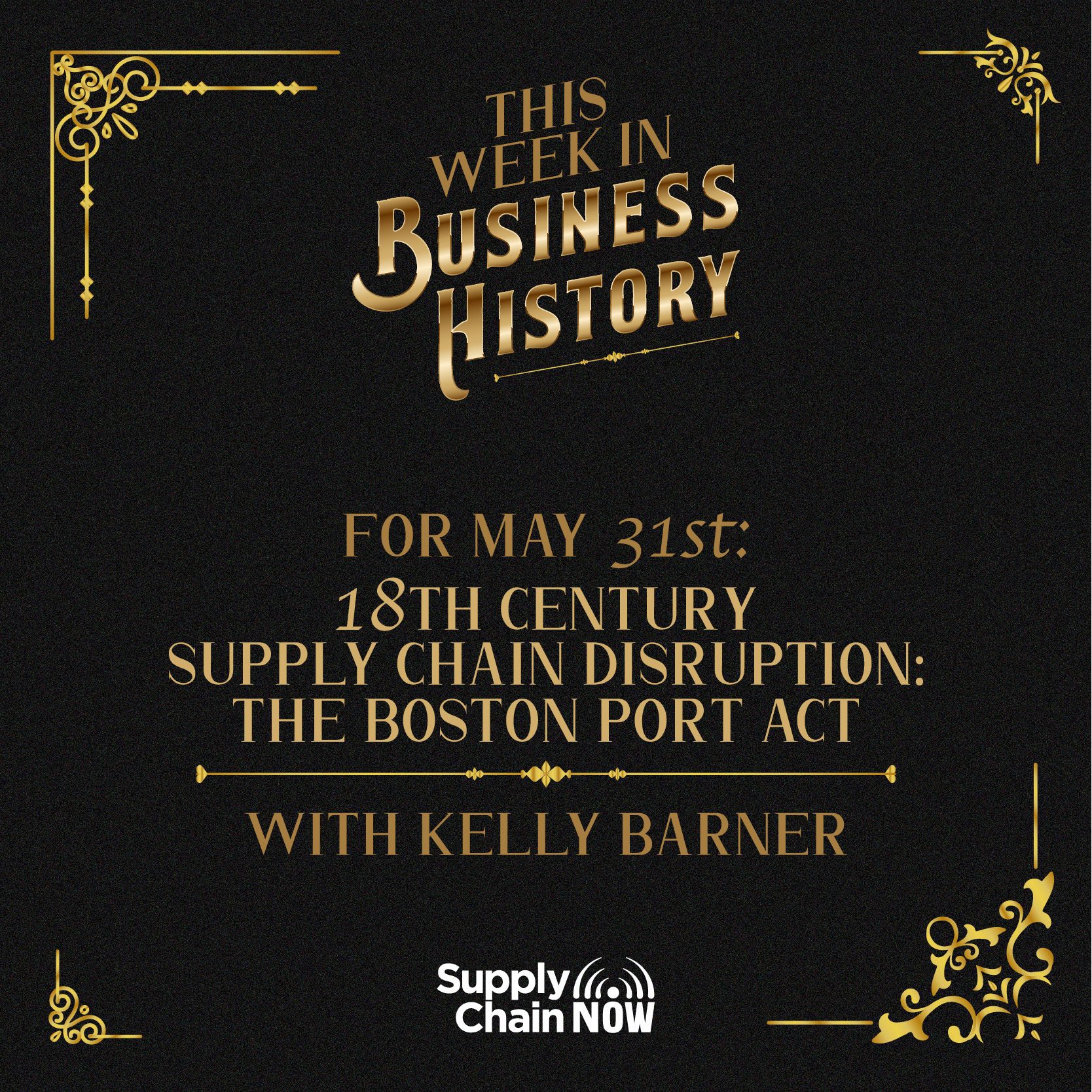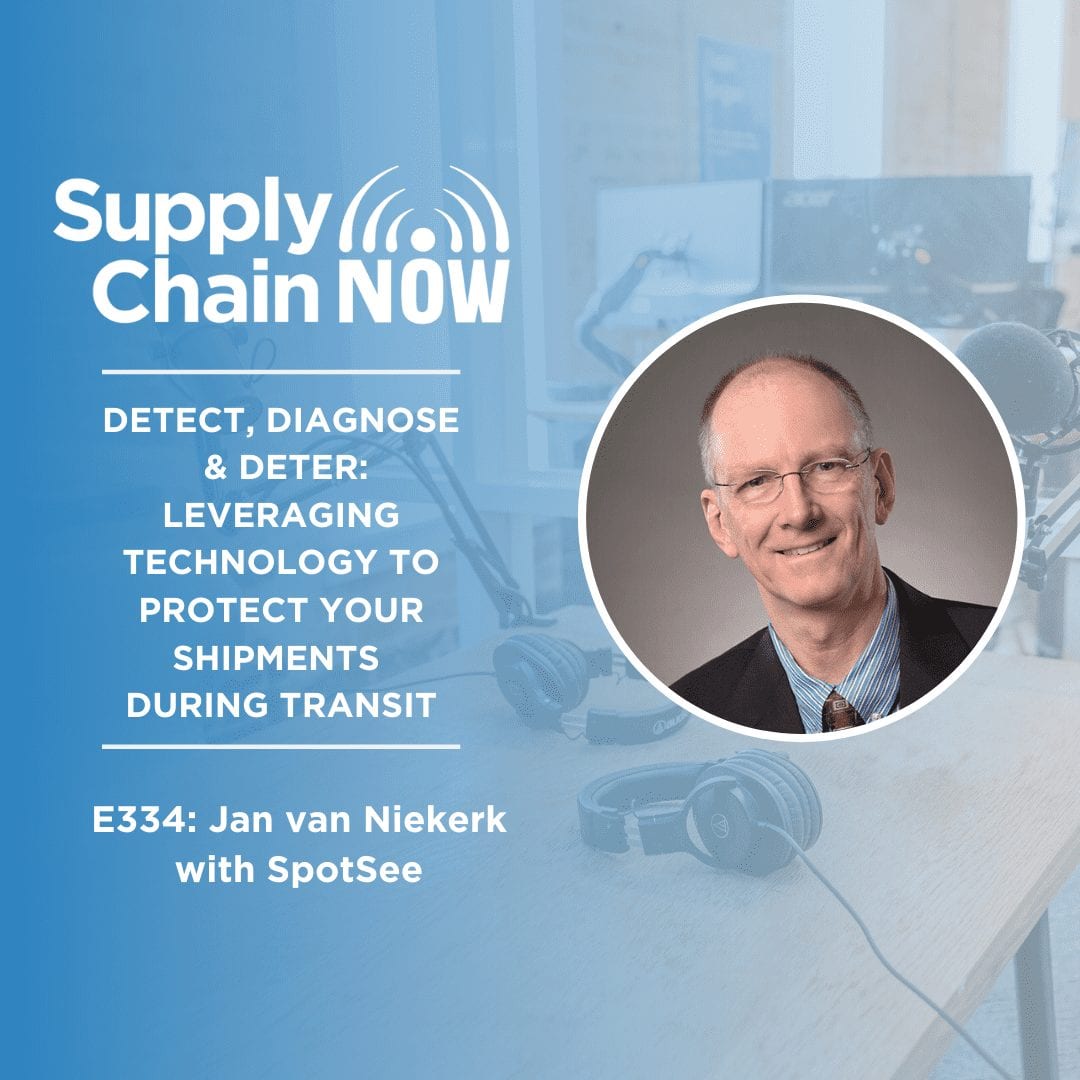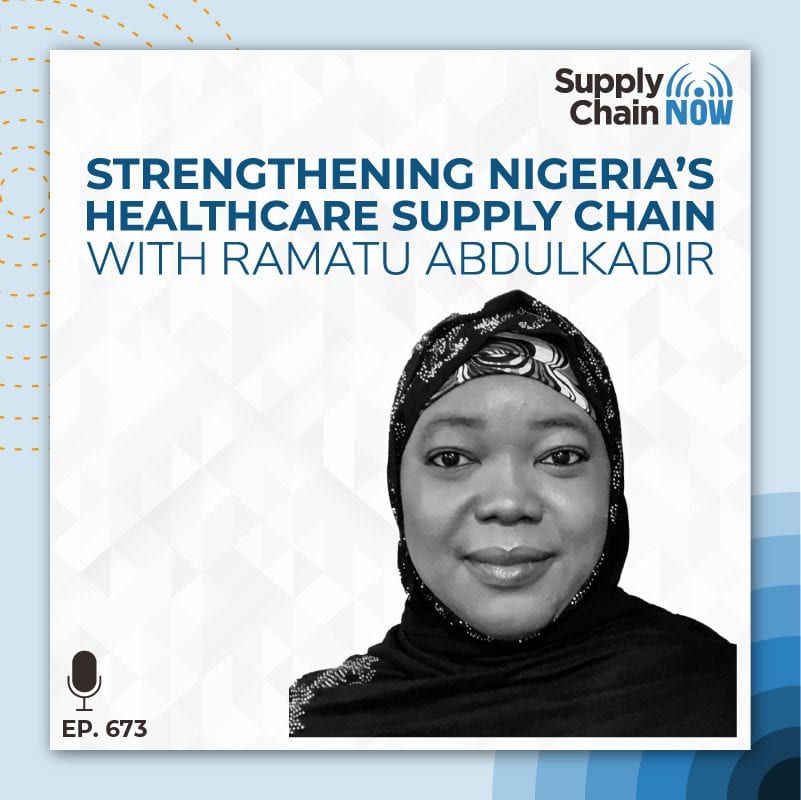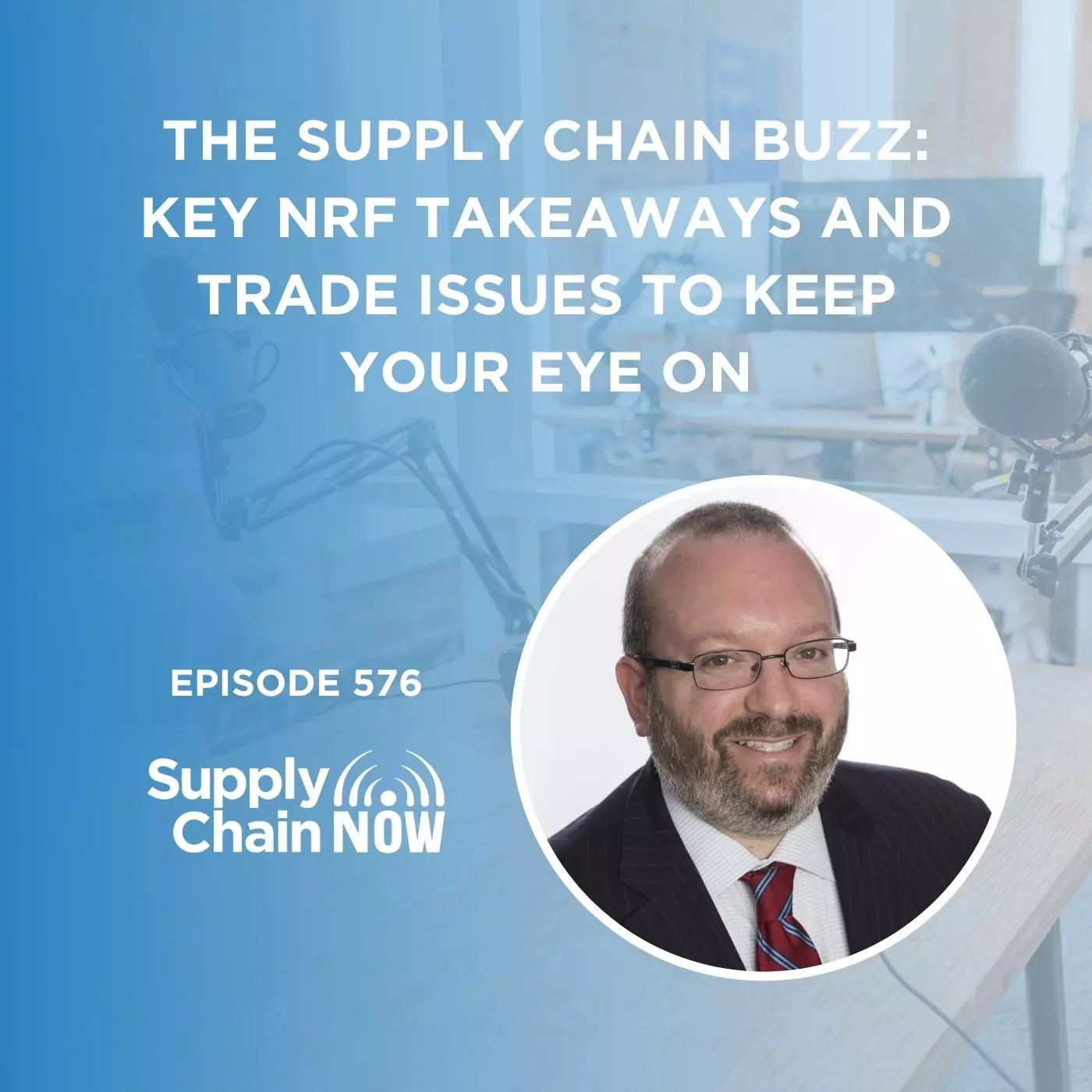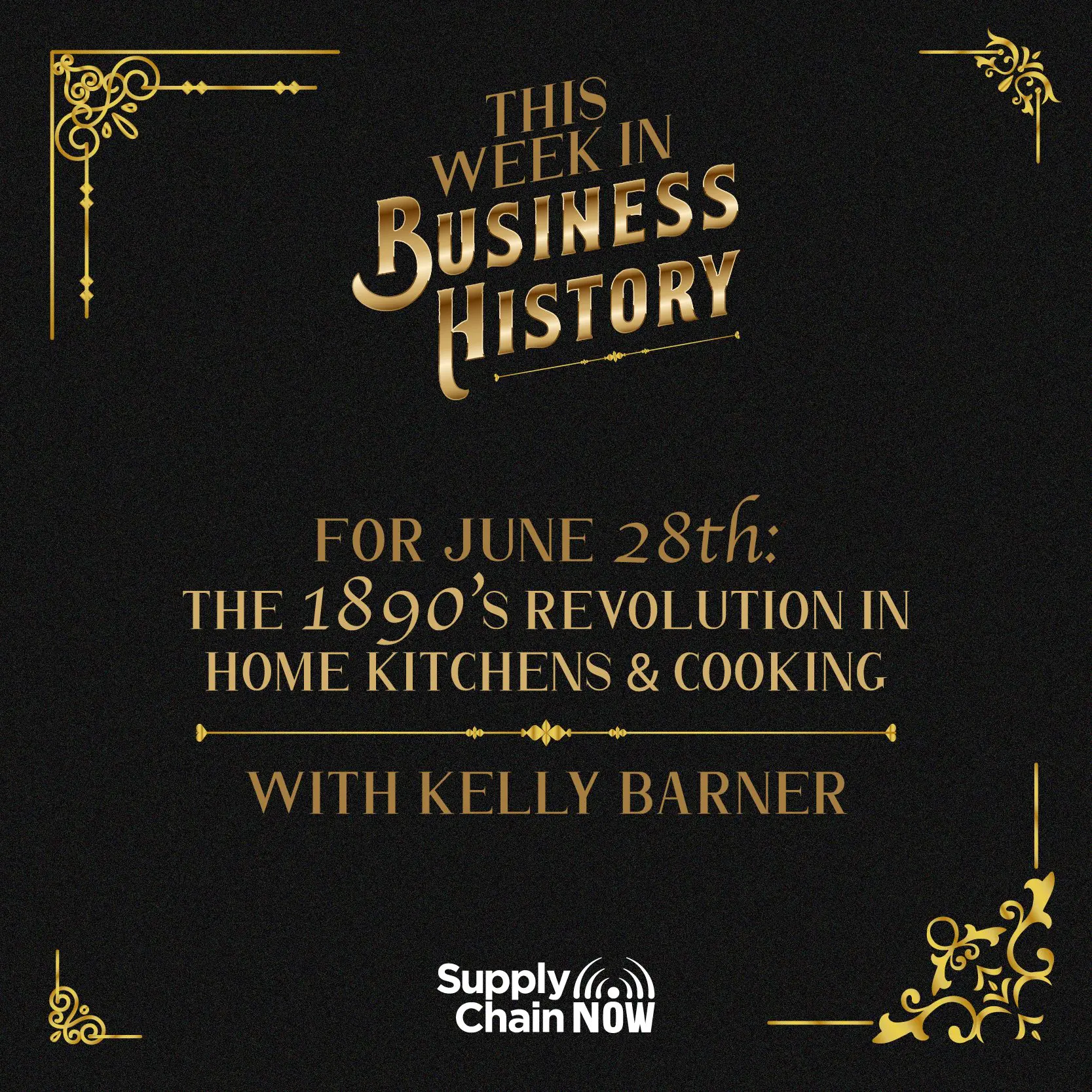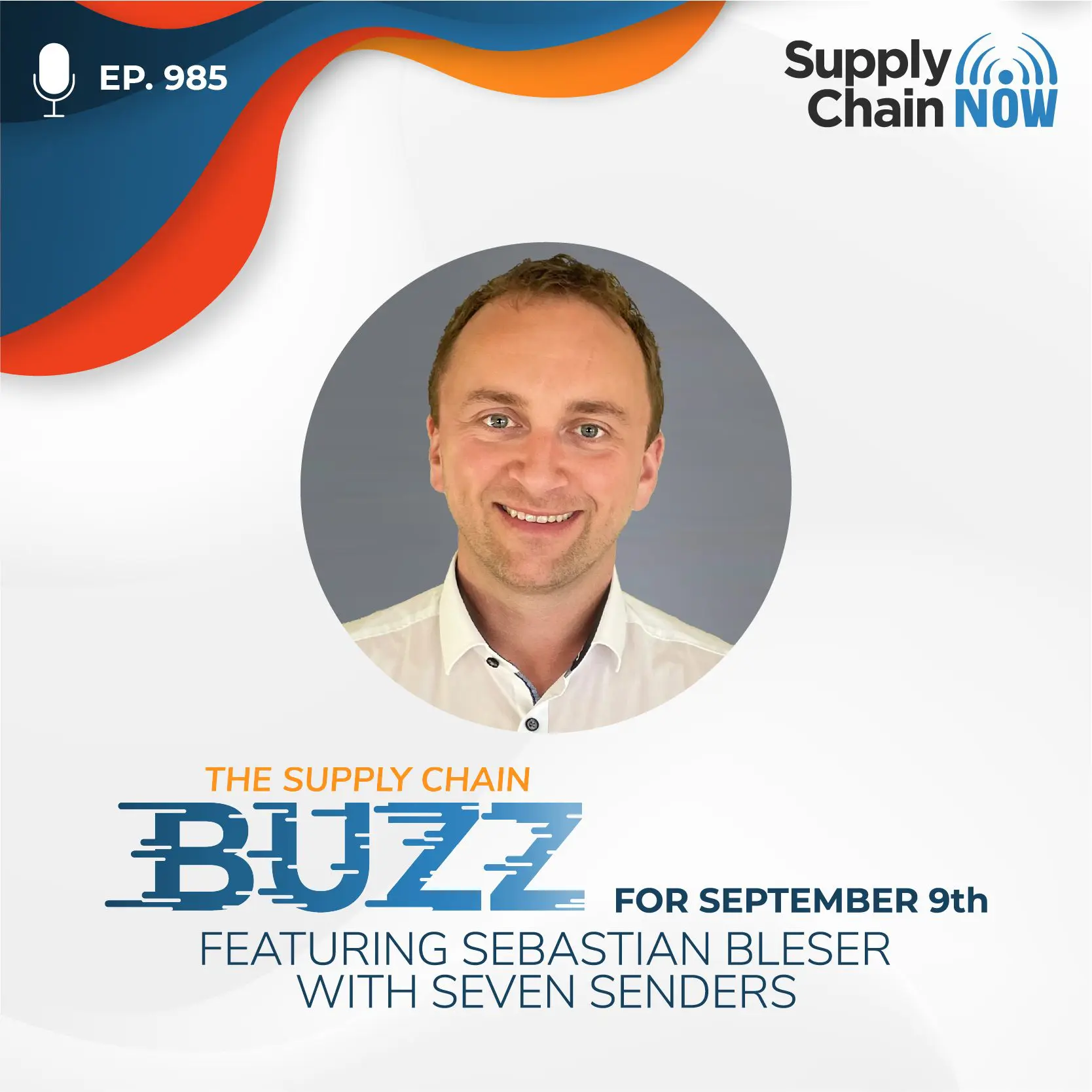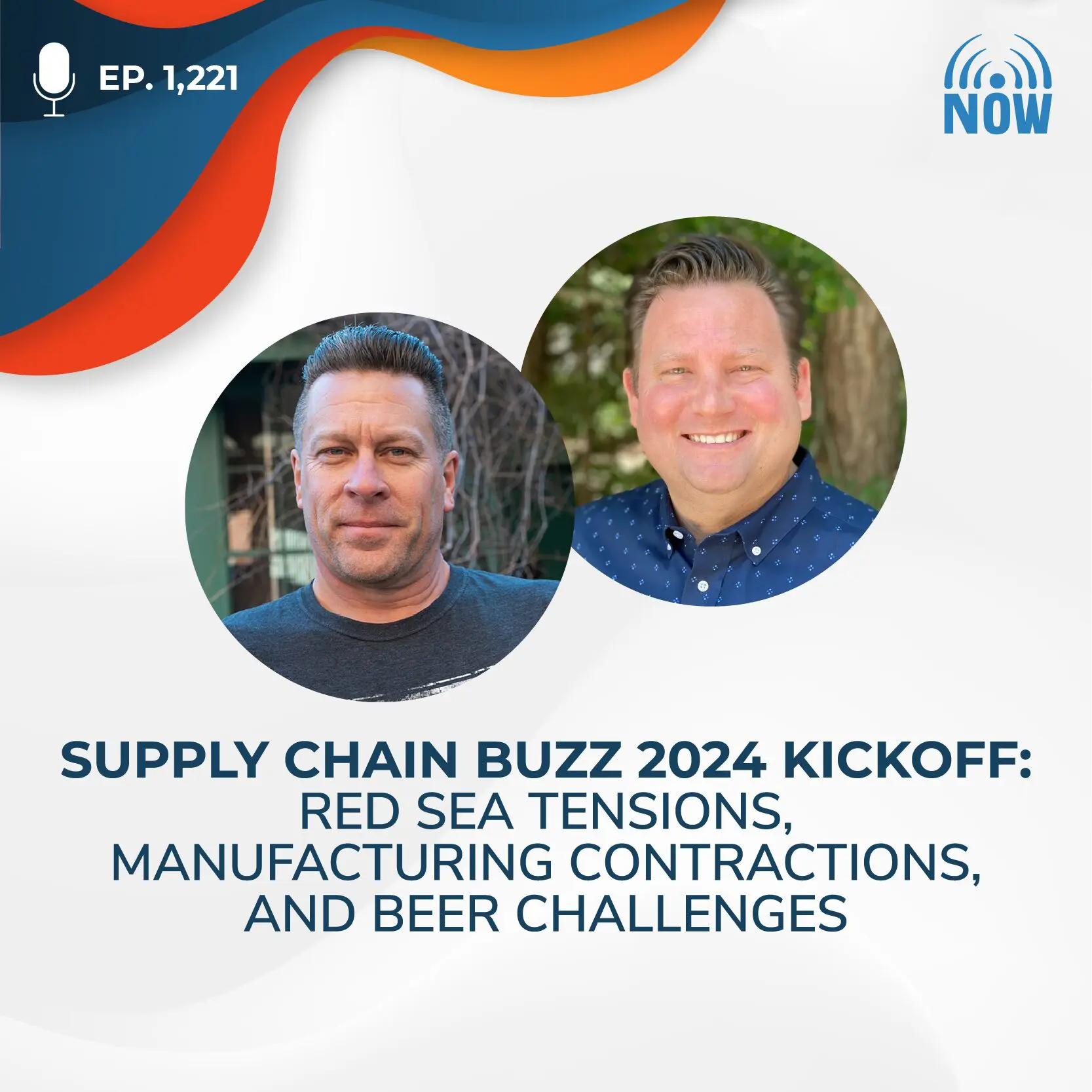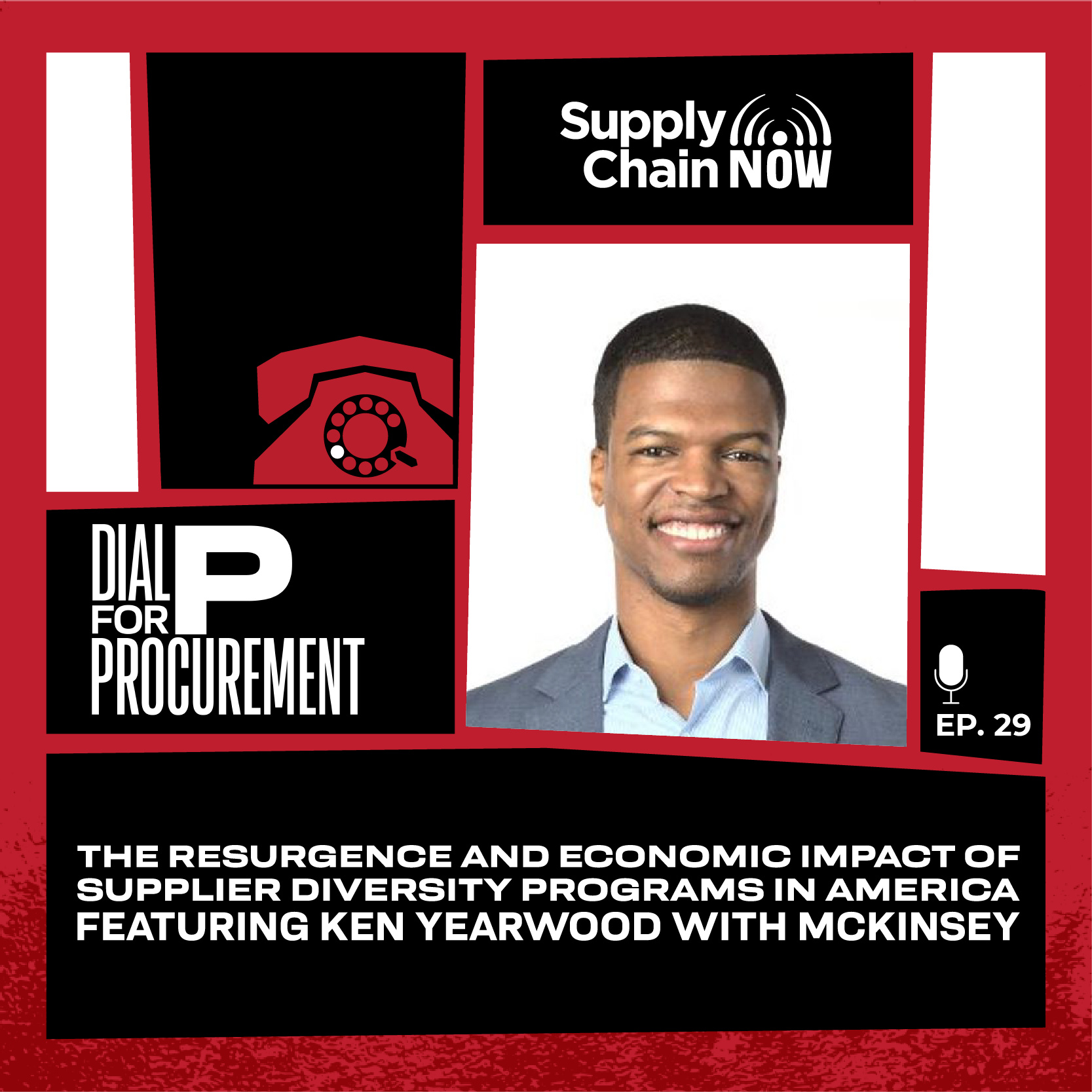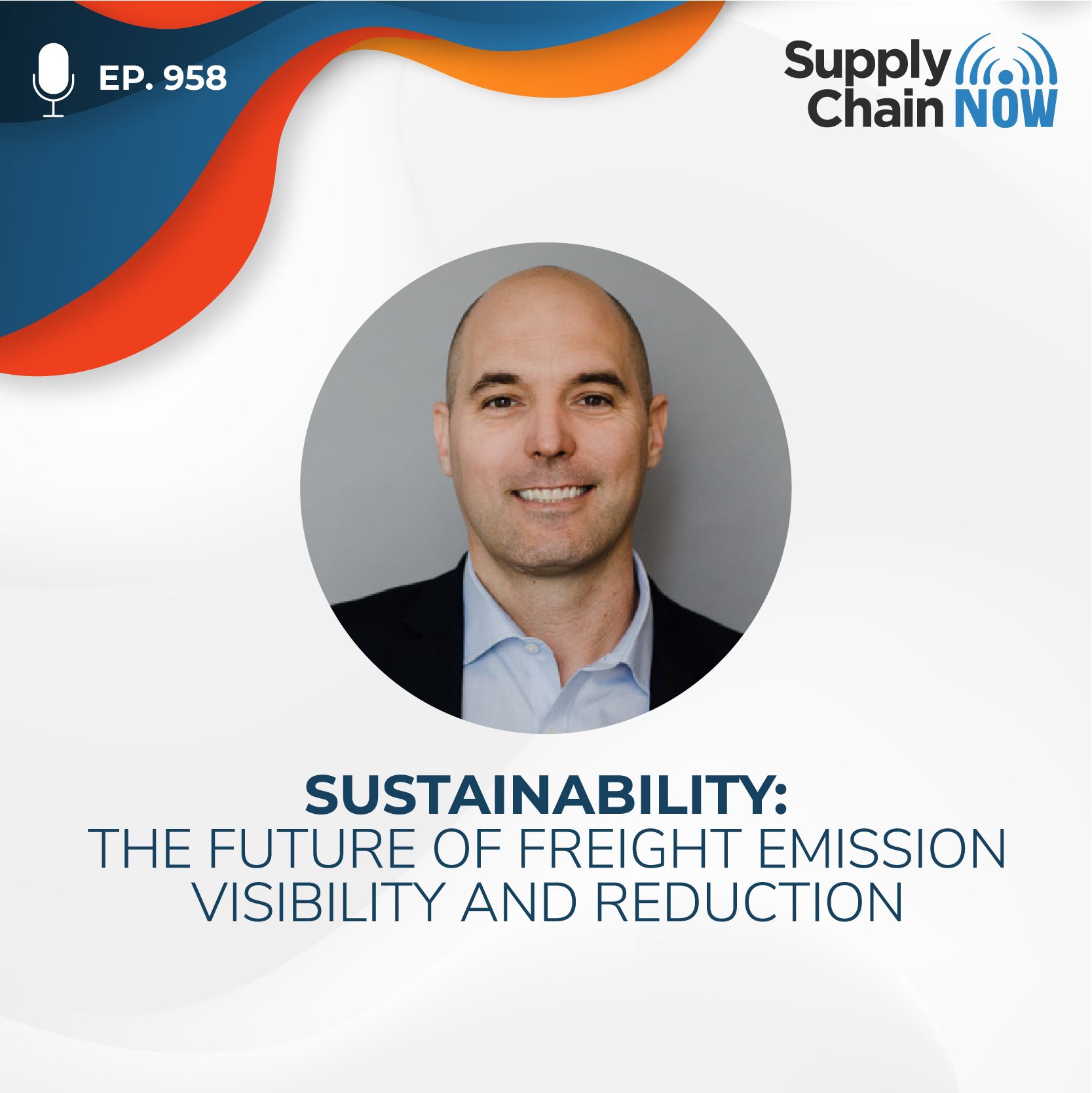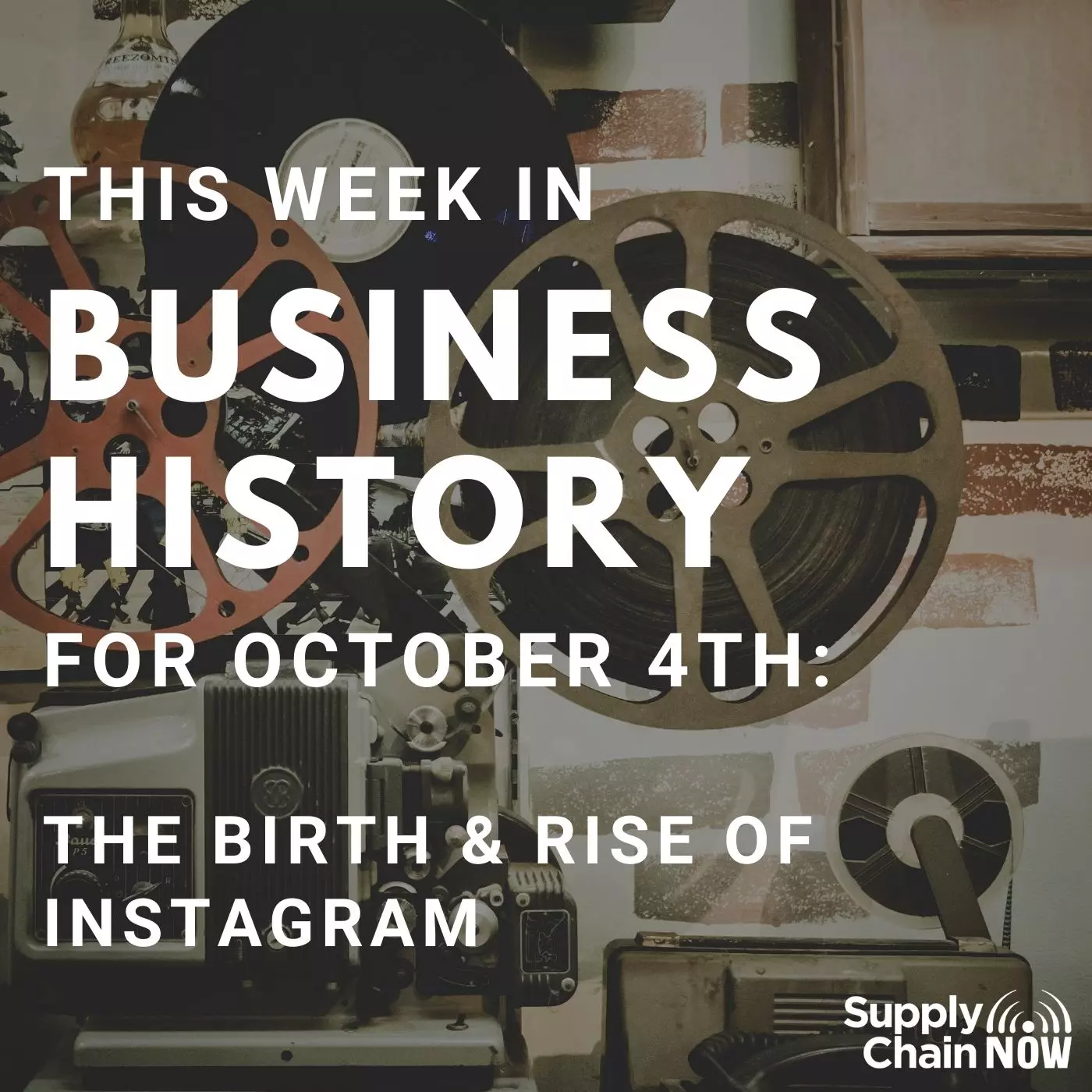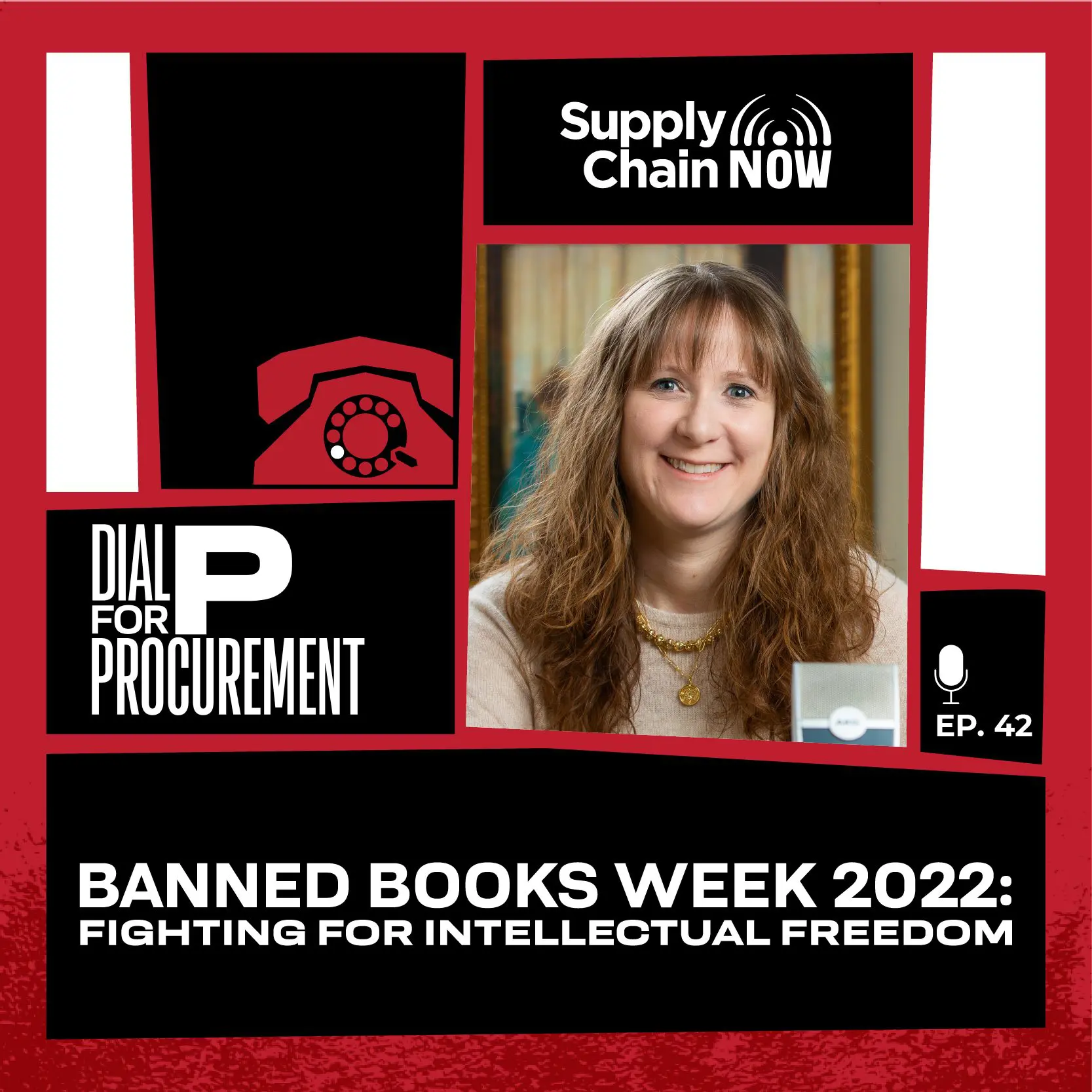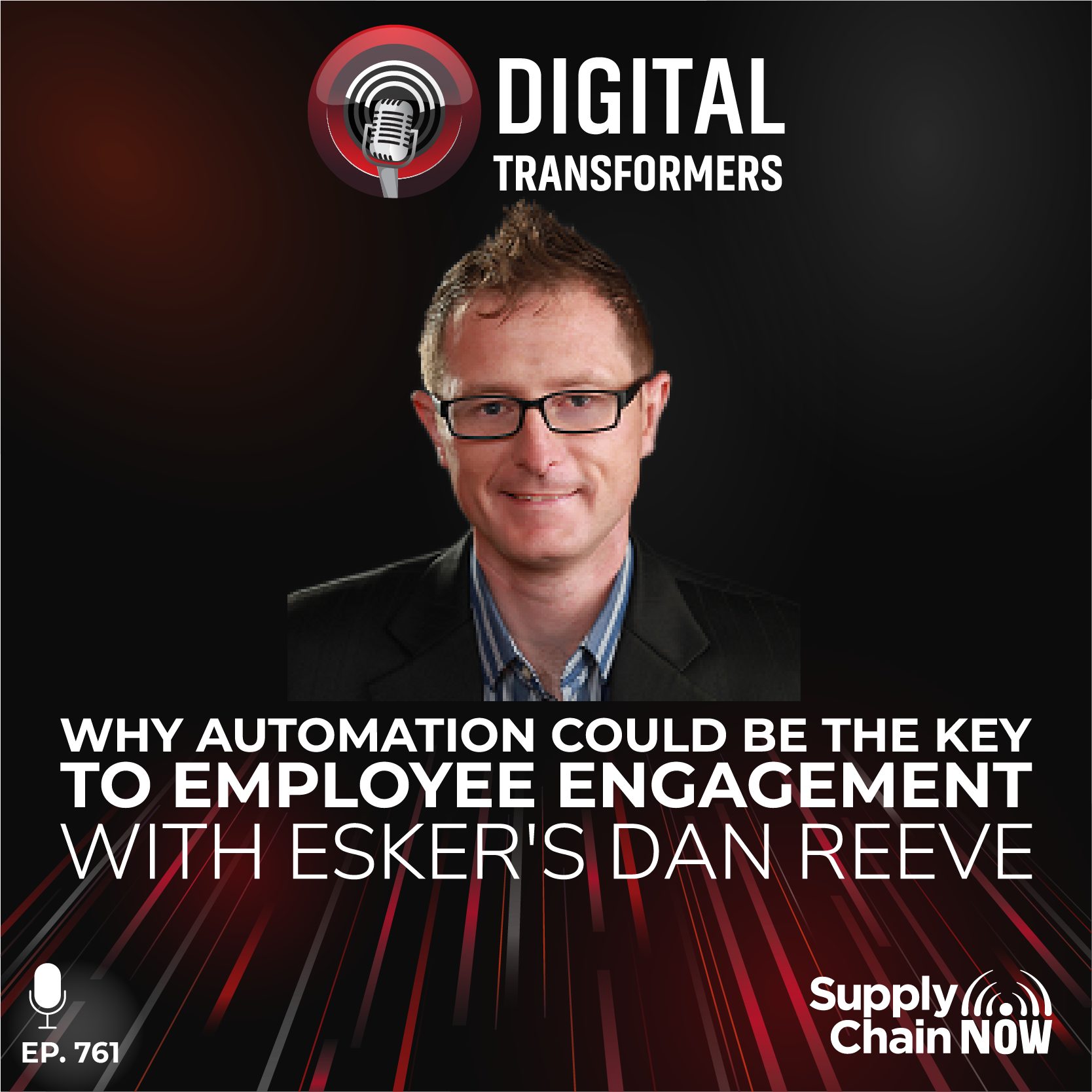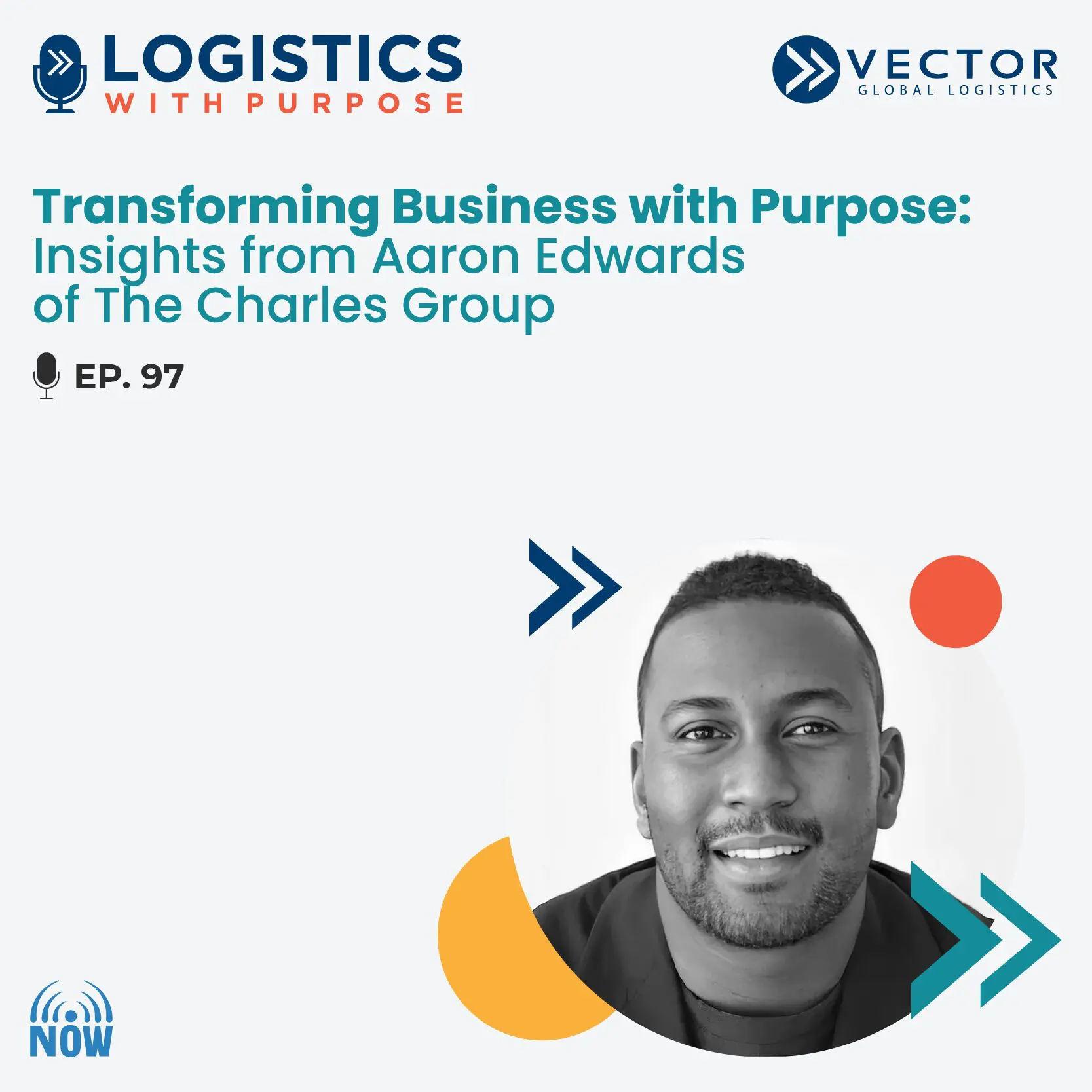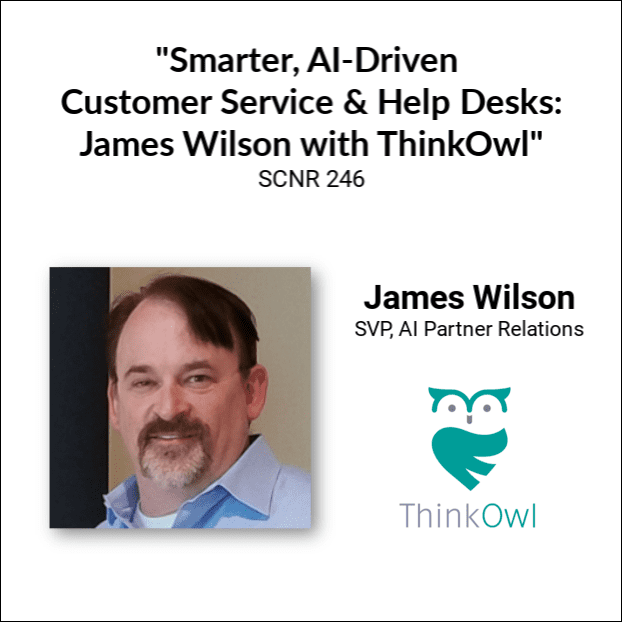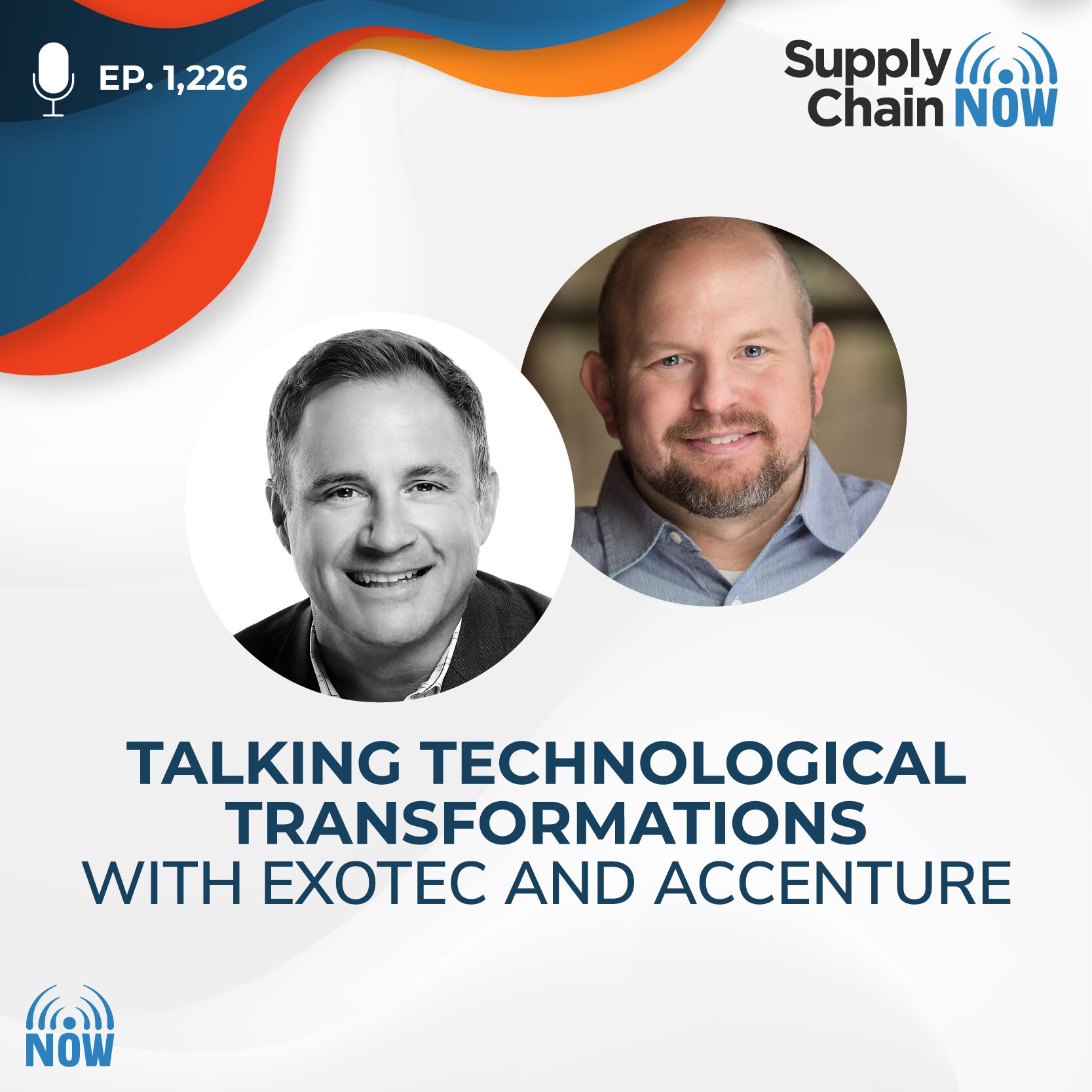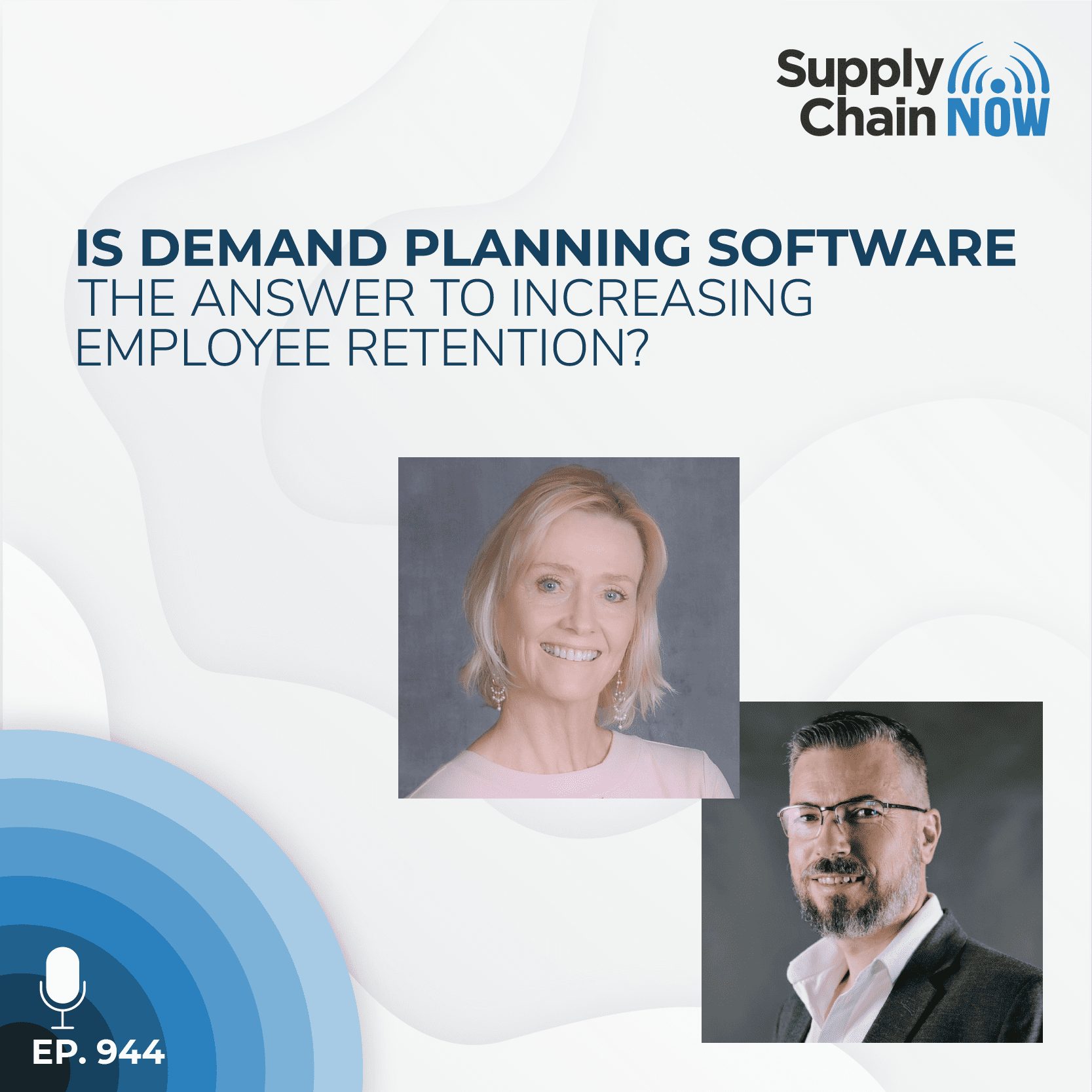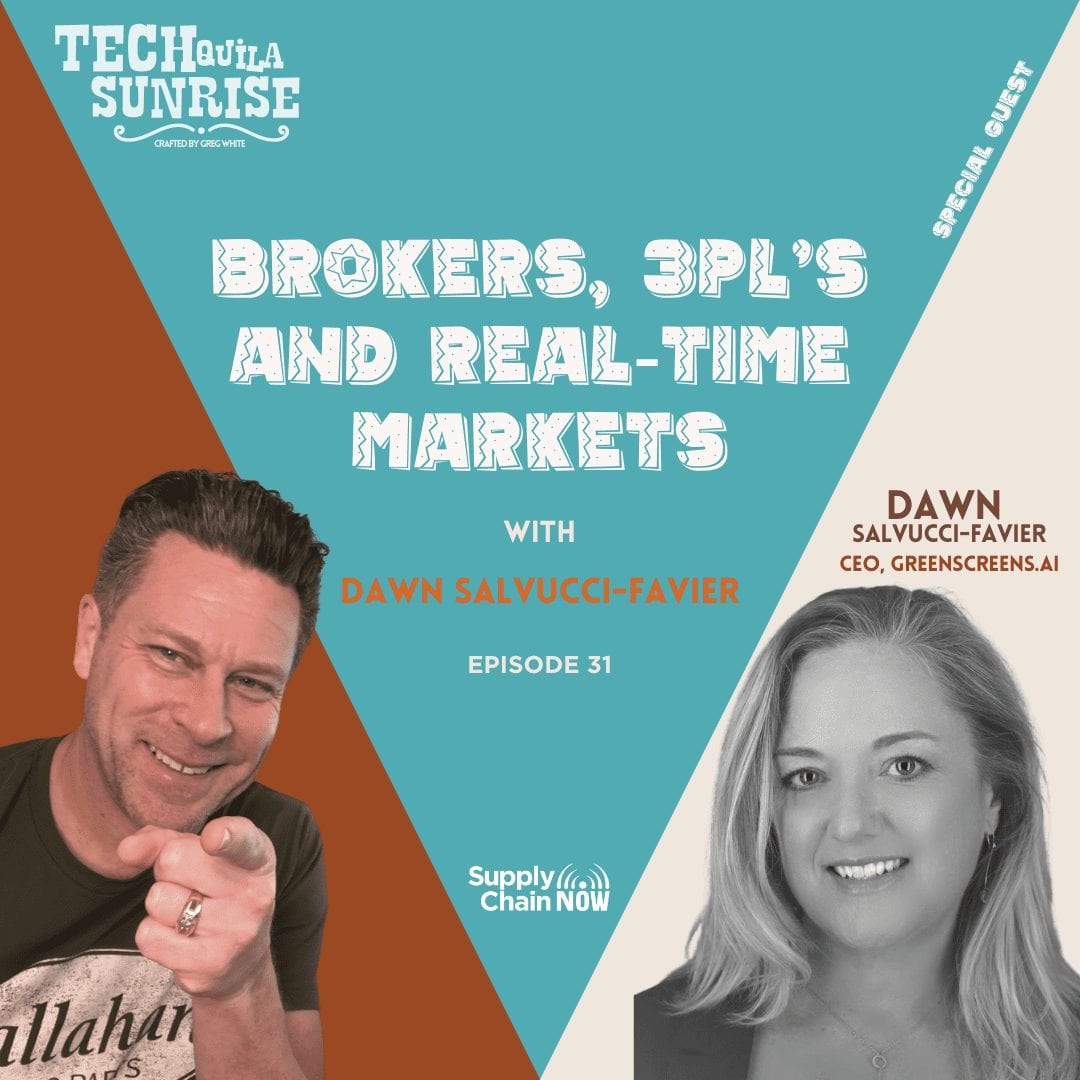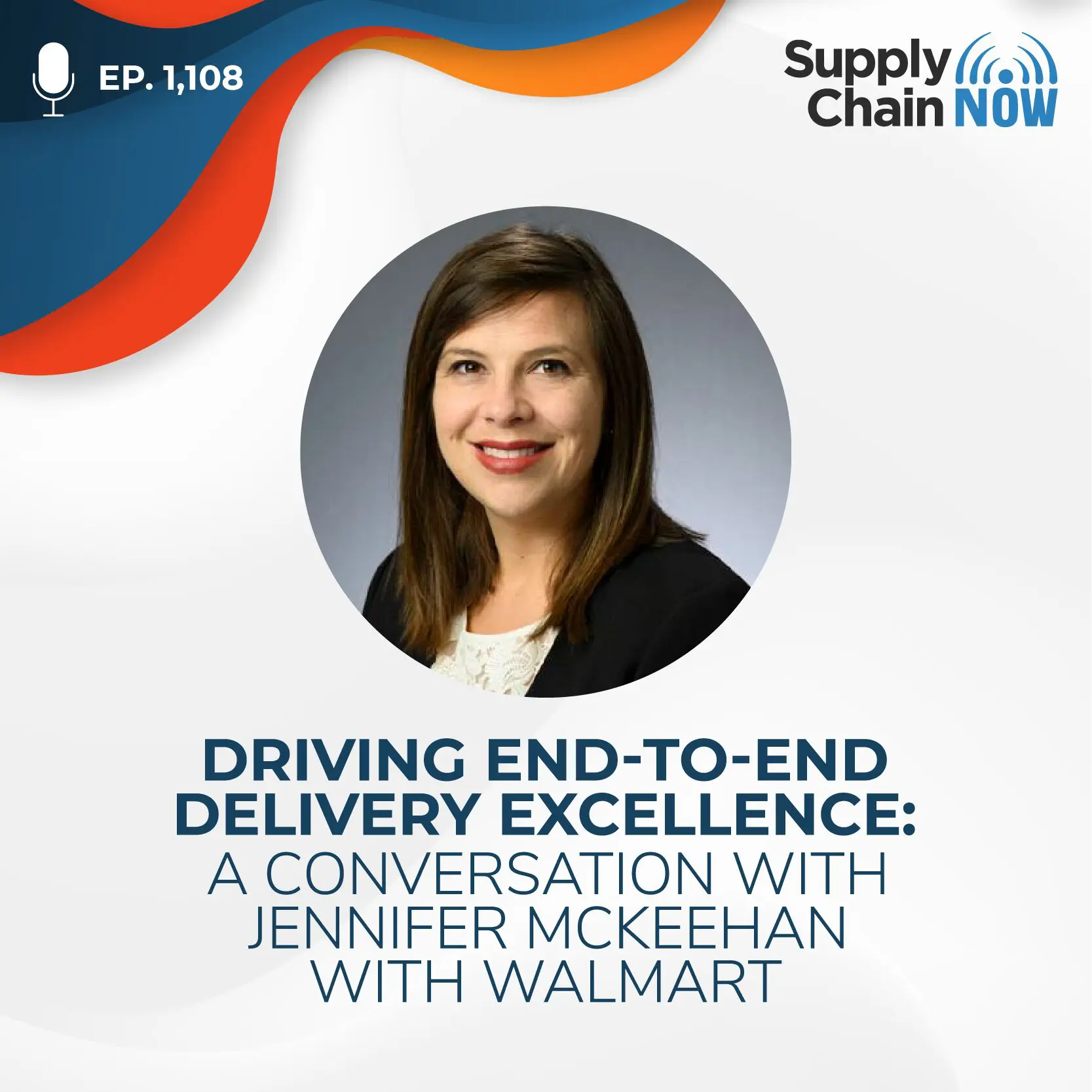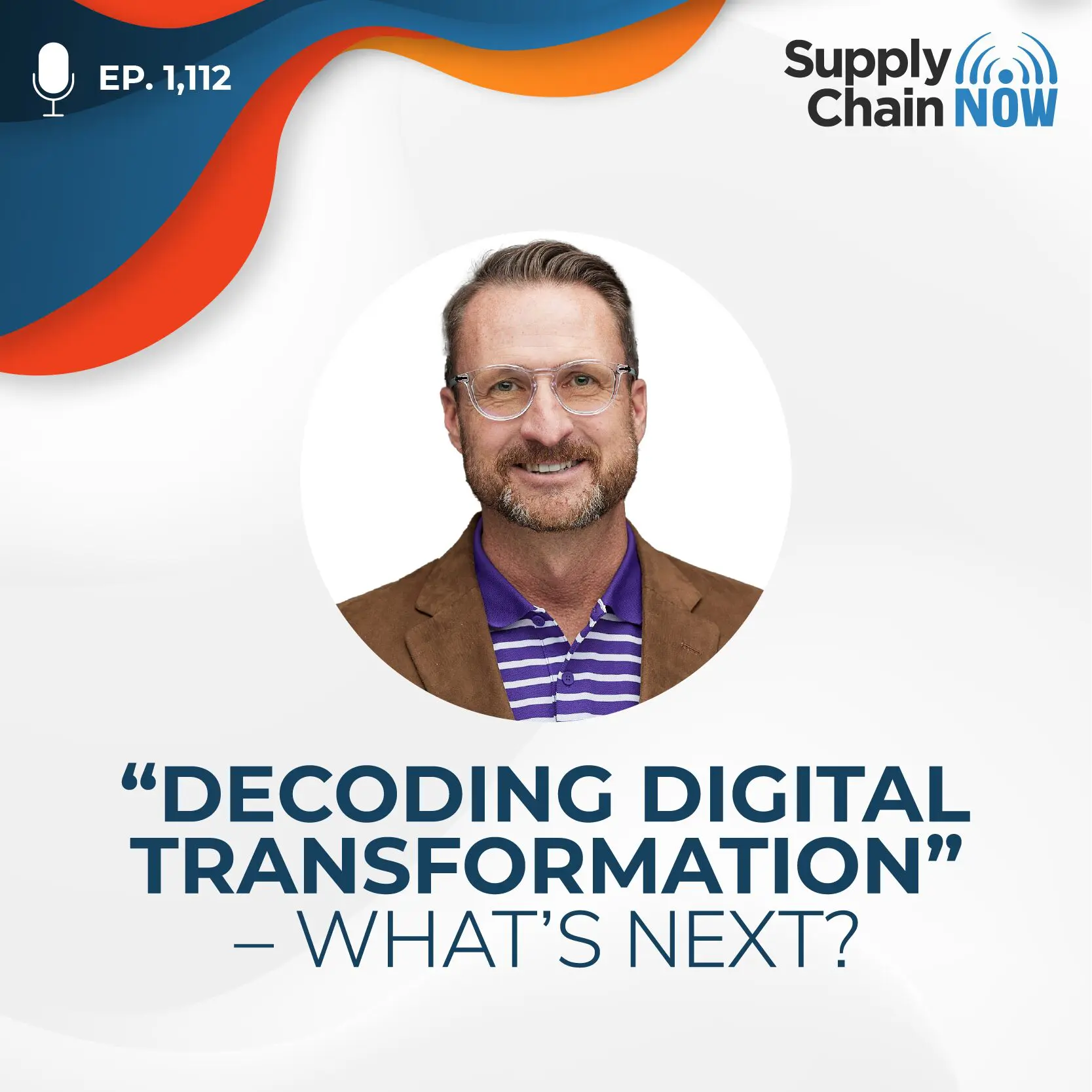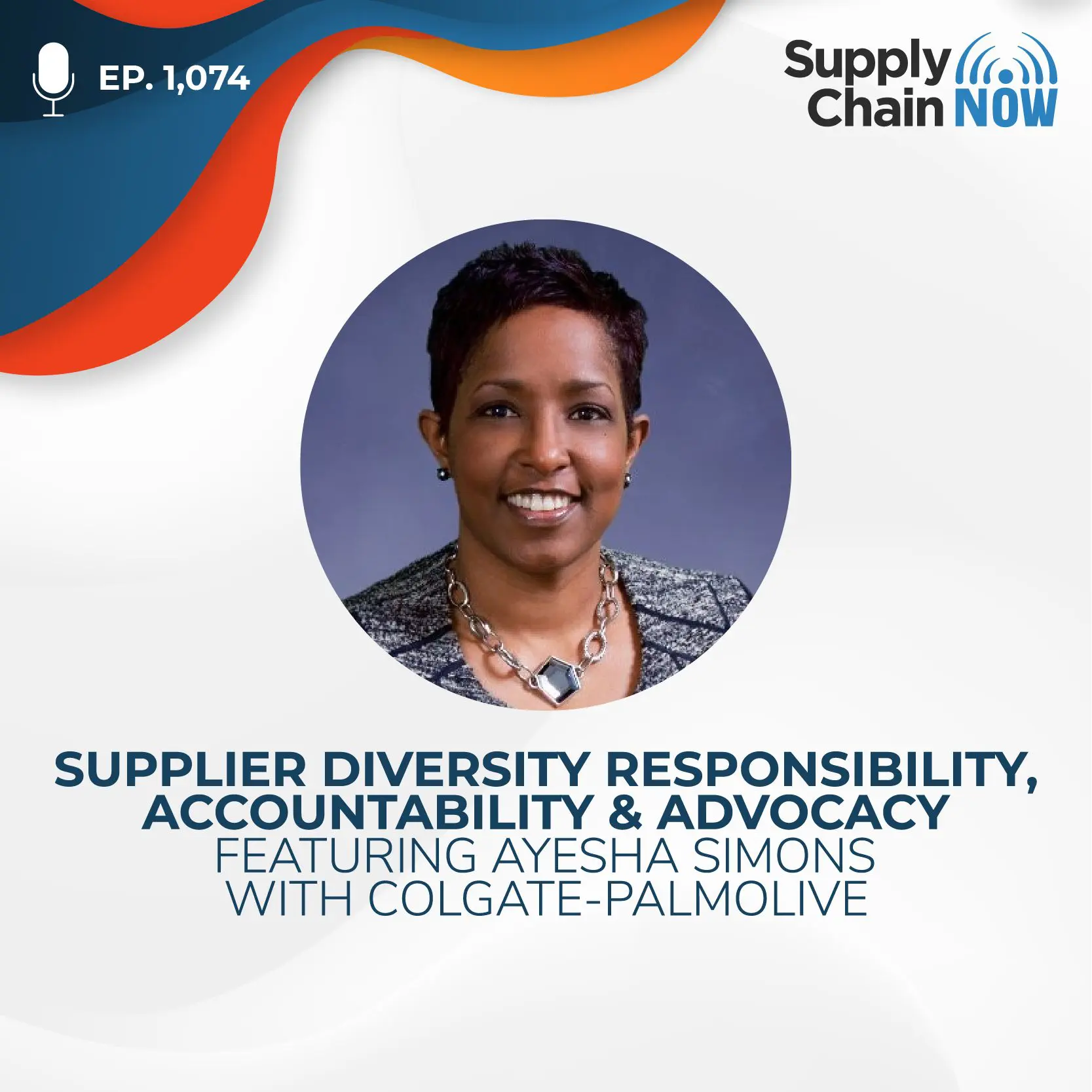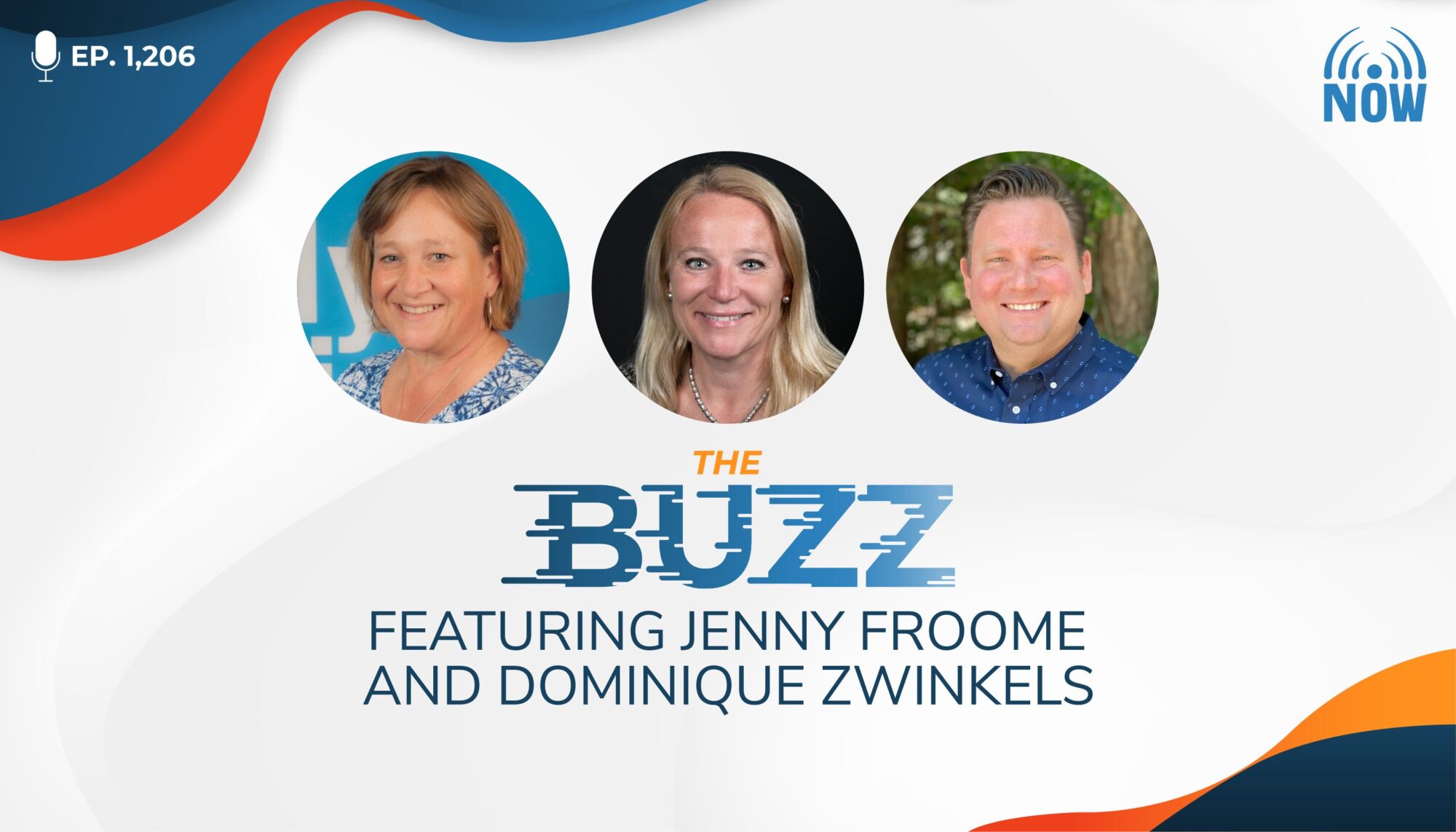
By professionalizing the supply chain, organizations can improve efficiency, we can reduce risk, and they can enhance the overall performance of their processes.
-Dominique Zwinkels
Episode Summary
The Supply Chain Buzz is Supply Chain Now’s regular Monday livestream, held at 12noon ET each week. This show focuses on some of the leading stories from global supply chain and global business, always with special guests – the most important of which is the live audience!
In this special episode of the Buzz, host Scott Luton is joined by guest co-host Jenny Froome from the Supply Chain Leadership in Africa series. They discuss the top breaking news in supply chain, and also welcome special guest Dominique Zwinkels with People that Deliver, a broad coalition of organizations working together to raise the profile of the health supply chain workforce as a key strategic area of health systems.
Listen and learn as Scott, Jenny, and Dominique discuss:
- The good, important work that People that Deliver is doing to improve healthcare supply chains
- Key takeaways from the recent Global Health Supply Chain Summit
- Development of the global supply chain workforce, and the mission of professionalization
Episode Transcript
Intro/Outro (00:03):
Welcome to Supply Chain. Now the voice of global supply chain supply chain now focuses on the best in the business for our worldwide audience, the people, the technologies, the best practices, and today’s critical issues, the challenges and opportunities. Stay tuned to hear from Those Making Global Business Happen right here on supply chain now.
Scott Luton (00:32):
Hey. Hey, good morning, good afternoon, good evening, wherever you are, Scott Luton and special guest host Jenny Froom here with you on Supply Chain. Now welcome to today’s live stream, Jenny. How you doing today?
Jenny Froome (00:43):
Doing so well, I’m very excited to be here. It’s been too long.
Scott Luton (00:47):
It has been too long, and we are over the moon to have our dear friend Jenny Fru back. You know, we’re big fans, co-chair of the Atlanta Fan Club, Jenny Froom fan club. So we’re great to have you back here today. And Jenny, so of course to all y’all out there, it’s the Buzz Live show that comes at you every Monday at 12 in Eastern time. Sometimes you can find Jenny in the cheap seats and we’ll welcome all of our attendees there. Let us know what you think about the conversation as it unfolds. We’ll be discussing a variety of news developments across global business and Jenny big guest joining us about 12:25 PM Eastern Time as we’re joined by our dear friend Dominique Winkles, with people that deliver. So stay tuned to that. Jenny Dominique is a dynamo, huh?
Jenny Froome (01:30):
She really is. She’s just such an amazing person at building a community. She’s great.
Scott Luton (01:36):
Agreed. We like talking about deeds, not words regularly, and Dominique is the much like you, the embodiment of that. It’s about all about action and outcomes rather than lip service. So big theme for our discussions today, we’ll be global healthcare supply chain leadership. So stay tuned to that. We’ll get y’all to weigh in right there in the cheap seats as we work through our conversation. Hey, if you’re listening to the podcast replay, you ought to consider joining us live on LinkedIn or YouTube or some other social media channel of your choosing on Mondays at 12 on Eastern Time. We’d love to hear from you then. Live in the moment. Alright, so Dominique is joining us in about 20 minutes or so. We’ve got a lot to get to Jenny over the course of the next 20, 24 minutes, huh? Sure
Jenny Froome (02:18):
Have.
Scott Luton (02:19):
But who’s counting? All right, we’re going to get to work. We’re going to start by offering up some resources for folks out there. Now, Jenny, me and you might’ve had a little picture, a little bit of a splash in the most recent edition of, with that said, our newsletter, which we drop usually on Saturdays or Sundays. And I think Jenny, the shot was me and you connecting in person again at the Saex conference in Cape Town. Is that right, Jenny? It
Jenny Froome (02:45):
Was indeed. And I think my smile says it all. It was just such a happy moment.
Scott Luton (02:49):
I’m with you. That was a great week and some change. So more on that later. But hey, with that said, again, drops usually on Saturday or Sundays, we include lots of news and views from across industry, including I think Godzilla made in its first edition of With that Said’s. So big shout out to Rob Tiffany out there, and each week you get a heads up on our upcoming live programming, especially for the next week. So y’all check that out. We’re going to drop the link there in the chat, and we’d love for you all to give us your feedback on what you like, what you don’t like, and maybe some new ideas for what you’d like to see. So Jenny, first off, you had a good weekend, right?
Jenny Froome (03:24):
Yep. Great weekend. Boiling hot here.
Scott Luton (03:26):
Really?
Jenny Froome (03:27):
Yeah, yeah, yeah. So lots of swimming to be had.
Scott Luton (03:31):
That’s great. The seasons are kind of reversed. So you’re in South Africa, we’re here in the metro Atlanta area and Georgia and the States. It is like in the fifties here, which it’s a lot colder in different parts and where you are, it is probably what, in the nineties? Fahrenheit? Yeah.
Jenny Froome (03:48):
Yeah, exactly. Okay. We are having a heat wave, which everybody’s complaining about, but it’s summer and it’s Africa, so I guess it should be hot. Really?
Scott Luton (03:59):
Everybody talks about the weather and no one does anything about it. It’s one of our go-tos around here. Alright, so y’all check out. With that said, we dropped a link there. We’re going to make it really easy for you. We also dropped a link to the turbo live stream, so y’all check that out as well. Alright, so Jenny, I’m going to share three quick headlines and if you’d like to comment on any of those, I welcome it. And then we’re going to talk about, we’ve been collaborating on this supply chain leadership across Africa series. I’m going to get some of your favorite episodes of our work together there. But first the news, and we’ve got some interesting news. I think there’s no shortage of it out there, right? We’re going to start with this story about manufacturing. As reported by supply chain dive, the US manufacturing industry continues its slump as data has been coming in on November activity, one of the main culprits is low consumer demand. It’s really interesting. Even though Black Friday sales were up, I believe still consumer demand overall is low. One of the main reasons why manufacturing is sluggish and analysts are expecting the industry to remain in a trough for at least several months to come. Alright, moving from manufacturing to more about the workforce year. I think we coined this, Jenny, I think it was with you could have been with someone else. It’s really been the year of the workforce. That seems like this year.
Jenny Froome (05:13):
Yeah. People are realizing people matter,
Scott Luton (05:16):
Right? You’re absolutely right. So in this next story, quick headline is reported by manufacturing dive on the heels of major wins for organized labor in the automotive industry. In recent weeks, a massive coordinated push is being made to add as many as 150,000 new United Auto workers members in the automotive industry. These organized efforts were launched simultaneously across at least 13 auto manufacturing companies. So we’ll see, Jenny, there’s membership drives and then there’s membership drives to get 150,000 new members. How about that?
Jenny Froome (05:51):
That’s an incredible number. It’s amazing.
Scott Luton (05:54):
It sure is. I love this graphic. So folks, if you’re, you’ll miss out. They say bots don’t take a break. We’ve got an image of a bot kickback drinking a cup of coffee here it looks like. So I’m talking ai, right? Because everyone else is talking AI as reported by the Associated Press, it’s a critical week for the European Union’s Artificial Intelligence Act. Now, this innovative policy has been in the works for several years now. I think the first draft came out I think in 2021, but it’s gotten bogged down a bit. Jenny, as things do in the details, including arguments over, especially as chat GPT has risen in that timeframe since the first draft. There’s been a lot of discussion, disagreement on how to regulate platforms like that. You got 27 nations that make up the eu, and they’re all trying to strike that delicate balance between under and overregulation and no word Jenny. If anyone has asked chat GPT to weigh in with its official position, we’ll stay tuned for that. But Jenny, as exciting as the world of technology and particular artificial intelligence is, there’s still some responsible policies we’ve got to put in place to make sure that it works for the whole ecosystem out there, right?
Jenny Froome (07:00):
For sure. And I don’t know where you start because it’s moving at such a rapid pace. It’s almost like you can’t say, stop. We need to get the rules in place,
Scott Luton (07:10):
Right? It doesn’t work. No, it doesn’t. And one of the stories we put into the with that said, which y’all go check out that link was there’s lots of litigation, I think mainly here in the states in particular, old Davy, which is owned by gap. Well, old Navy is being sued because it’s chatbot for illegal wire tapping, I think is the, because it’s taking information and it’s saving it. So Old Navy and many other companies are being sued based on the information that its chatbots Gather, and it doesn’t disclose that it’s keeping the information. So Jenny, we’ve got to govern and put in place some policies for situations like that, right?
Jenny Froome (07:47):
Well, we had it, we know we’ve got it with GDPR and in South Africa we’ve got the protection of Personal Information Act that everyone had to go to masses of lectures to learn about. And AI is superseding or taking over all of this.
Scott Luton (08:00):
Yes, lectures, that’s a great word. I’m hoping that I can find some AI to take care of any lectures I got to listen to. But you make a great point, and y’all can check out the article. This is Associated Press that we’re referencing here. It talks about how the EU really is leading the globe in terms of having the conversations that Jenny’s kind of referencing, but if they don’t act this week, there’s some challenges where leadership may turn over and then it might push back into next year. And that gives other areas of the globe, the us, China, and other places to maybe be the first mover with policies meant to govern ai. So stay tuned for a lot more of that story. Alright, so Jenny, I’ll tell you again, really, I’m always excited. Our team’s always excited when we get a chance to continue our years long collaboration highlighted, I would say by our work together on this ongoing supply chain leadership across Africa series. It’s been fascinating to meet the friends of Jenny Club from really across the African continent and then some really by our account. Jenny, I think we’ve produced about just over a dozen episodes, again going back a few years. And as you know, really excited. We are about launching new episodes in the coming weeks, including featuring incredible do good leadership with our friends over at Village Reach. So folks stay tuned for that. But question for you, Jenny, what’s been a couple of your favorite episodes over that time as part of this series?
Jenny Froome (09:25):
Well, I was just thinking that the topics that we’ve addressed as much as the incredible people that we’ve had, we’ve gone from blockchain in the wool industry to bicycles delivering goods in the last mile. So it’s really been, for me a huge education as to all the incredible things that go on in the supply chain anyway. But from an African perspective, taking into account the infrastructure challenges, there are some pretty tough people out there doing amazing work. And I think for me, we talk about Village reach, that was definitely one of my highlights, talking with Topi Toge just amazing. And we did wonderful webinars and things with them during lockdown learning all about movement of PPE and the incredible stuff that they and other organizations were doing, particularly during the covid epidemic. And another one I particularly enjoyed was actually with the Saex president, MJ Schumacher, because you think you know somebody and then when someone like you interviews them, you ask them all the questions that you don’t think to ask. And so you learn so much more about people. And I think that’s something I’ve really enjoyed about all these series is how I’ve learned more about the people I’ve worked with a lot. Just because you are so good at the way you ask questions and they relax and they’re always great sessions,
Scott Luton (10:55):
Jenny, you’re too kind. They relax, then you get ’em right. Is that what you’re, well, we’ve had a blast and you mentioned some of my favorites, of course, Azua and Stella, of course Dominique, which we were talking in the pre-show, if we’ve done it once, we’ve done it a thousand times a million times, talking about her quote with us, her famous no product, no program, which really brings to the forefront the role that supply chain leadership, supply chain management has in addressing the issues of our time and in helping folks toge to PY, as you mentioned, of course, Stella Karn, you name it. It’s been a wonderful, and you know what? The beat goes on. We’re looking forward to launching the next round. We’ll probably publish those episodes in January. And Jenny be remiss if I didn’t mention, we conducted three shows, nine episodes there in Cape Town in Person. I mean that spiked the football that put on an exclamation mark on the series that goes back a couple years. That was a blast, Jenny, thanks for hosting us.
Jenny Froome (11:51):
No, I mean the Stellar and Karin one is a classic example of that. You do it online, then you reframe it and you do it in person. And it’s the difference of both and both are of exceptional value. And that whole story about mentorship up and down was really quite and cross-cultural mentorship as well. There’s been some really great
Scott Luton (12:12):
Stuff. Agreed. That’s a great lesson learned. I’m glad you called that out, Jenny, because mentorship is one of those phrases that folks have probably heard forever, right? There might be some eye rolls out there when you say it, but when you get it right, like Jenny just talked about, where not only where the mentorship and the learning is a two-way street, when you get that right man, it’s powerful for everyone involved. So I really appreciate that call out. Okay, so Jenny, we’re so efficient today we’re going to have some extra time with Dominique, which I don’t think either one of us would turn down, huh?
Jenny Froome (12:42):
No, never, never,
Scott Luton (12:43):
Never, never, never, never. Okay, so on that note, I’m delighted today Jenny and I both are our whole team. To bring back a dear friend, an incredible business leader. Our featured guest today brings more than two decades. We try not to break that rule. Jenny, two decades of international leadership experience to the table. Now since 2016, she’s been responsible for the management and overall performance of people that deliver a broad coalition of organizations working together to raise the profile of the health supply chain workforce as a key strategic area of health systems around the world. And folks, they’re making some serious progress in that regard. So with that said, let’s welcome in. Dominique Winkles, executive director of people that Deliver. Hey, hey Dominique, you doing? Hi Dominique and Jenny together, that one, two punch. Hey, we’re ready for whatever life throws at us today. Aren’t we ready?
Dominique Zwinkels (13:34):
Yes. Ready?
Scott Luton (13:35):
So I’m going to start, we’re going to get to a lot of stuff here today, but Jenny and Dominique, before we get started, I want to recognize what today is for many places around the world, the Extraordinary Work Team Recognition Day, our pre-show conversation, it maybe also be Donut Day and some other Tasty Food days based on y’all’s global travels, but we’ll stick to Workforce, extraordinary work Team recognition day. Now Jenny, for starters, you’ve got a great acronym for the word team. What is that?
Jenny Froome (14:02):
Together everyone achieves more,
Scott Luton (14:04):
Right? And you know what? Y’all may or may not have heard that before out there to folks watching or listening, but Jenny lives by that and that’s one of my favorite parts of that acronym, Jenny. So Dominique, I want to start with you with our fun warmup. What is one of the coolest ways that you’ve seen teams celebrate their achievements?
Dominique Zwinkels (14:22):
I have an example from just recent times where Jenny and I were at the Global Health Supply Chain Summit the week of November 13th in Nairobi, and it was such a team effort all week. We worked so hard, we worked hard in ensuring that the different sessions that we were at we’re flowing well to advocating a lot for the professionalization of supply chain workforce, as well as promoting our upcoming conference called the PTD Global. And that towards the end of the week, it was my birthday, and even after five hours of meetings, we all went out and really celebrated those achievements of that week. And it was such a beautiful place that we went to, we got to see the whole city of Nairobi on one side, the city on the other side, the national park. It was a beautiful setting. Drinks were flowing, food was great. It was such a great way to end the week.
Scott Luton (15:16):
Okay, so Dominique, you’re setting quite the gold standard with that celebration. Alright, so Jenny, that’s going to be tough to top.
Jenny Froome (15:24):
I’m going to bring it right back, right back down to real levels. So as a team, our own team, we decided that we’d had a great year and we wanted to do something. So what did we do? We did the Muddy Princess, which is a run or a waddle in some cases, and it’s literally supposed to be in the mud. The only problem was was there wasn’t any mud. So they had to manufacture mud, which they used horse manure for. Well, we were told it was horse manure. It was really quite an interesting experience, but we did it and we had a great time and that was how we celebrated our team.
Scott Luton (16:01):
All right, I love it. So as much as I love the Muddy Princess, if I had to pick, I think I’m going to join Dominique’s team because I would definitely be one of those Ward, if I heard that right, Jenny Warding through the Muddy Princess. That’d be me. Alright, one more quick follow-up question before we get into more work stuff. Dominique, you said the drinks were flowing. What was one of your favorite wines or beverages that would maybe popular as part of y’all’s celebration?
Dominique Zwinkels (16:26):
Oh my gosh, that’s a great question. It was probably Prosecco with berries in it.
Scott Luton (16:32):
Ooh, okay. Yes. Alright, well next time folks, the three of us get together, we’re going to celebrate with Prosecco and maybe take the muddy Princess after, or maybe before, we’ll see, we’ll see how that works out. But when
Jenny Froome (16:44):
You’re in Kenya, you have to have a doer. It’s compulsory. Dawa means medicine in Swahili and it’s a drink traditionally of Kenya can lime and cane sugar and it’s absolutely delicious and it sorts out any problem.
Dominique Zwinkels (16:56):
Yes it does. We’ve had a few of those
Scott Luton (16:59):
Man. Well we need, hey, as we all know, we need more things that help us sort out any problems amongst any parties. So we’ll all sign up for that. Alright, so Dominique and Jenny, Dominique, much like Jenny’s been with us plenty of times, I want to say you’ve been with us two or three, four times, but for the handful of folks out there that may not know about what you and people that deliver, do for context, share a little information about people that deliver and your role there.
Dominique Zwinkels (17:25):
Of course, absolutely. Thanks for giving me this opportunity. So people that deliver, it’s PTD for short, so you’ll often hear me say PTD. So we were established in 2011, so several years ago now when sort 80 organizations came together at the World Health Organization. And these 80 organizations basically pledged their support and action to strengthen the health supply chain workforce. All the while this idea of professionalization of the supply chain role within the health system, but I’ll explain what I mean with professionalization in a minute. But basically how we work is based on the premise that if you do not have the right people with the right skills running supply chains supported by appropriate human resource systems, you will not have a well-functioning supply chain. And so with that, we are what we call the global technical leader in human resources for supply chain management.
(18:17):
It’s a mouthful. So what do I really mean with that? So we are a global advocacy organization and we advocate on behalf of the health supply chain workforce in low and middle income countries. We represent the interests of this health workforce and we are their voice to ensure that they become a professional workforce. Just to give you a little bit of background, in many low and middle income countries, there aren’t enough people as well as qualified people working in health supply chain management. And these people are necessary to ensure that essential medicines, vaccines, other health commodities get to the patients that need them. So we talk about the no program, no product, no program. I think maybe something new you can also add to that repertoire is we need people-centric supply chains. We often talk about the customer-centric, but the supply chains that operate in this space, it’s about people-centric. And so these health programs that the supply chain workforce supports, they’re helping to end the hiv aids epidemic, malaria infections, TB infections. We need them to ensure that supplies are there for reproductive health as well as a lot of the non-communicable diseases that we’re seeing coming into this space. So we’re talking about cancer, diabetes, heart disease, and
Scott Luton (19:41):
We admire your work ever since we first connected. And Jenny, what Dominique just shared there, really that takes my mind back through to a lot of the learnings that have come out of our Africa focused supply chain conversations. I mean between infrastructure, between needing more qualified people so that these supply chains can be efficient and serve as many folks in need as possible, especially in these low and middle income countries. But Jenny, what’d you hear there? Where to take your mind, as Dominique described what they do at PTD, it
Jenny Froome (20:10):
Always reminds me that we must never, ever, ever stop or must never take people for granted in the supply chain. And I think it’s so easy with technology, with ai, with all the bells and whistles that go on, it’s so easy to forget that the people and when you are in this public health space, you realize even more just how important the people that are part of the supply chain are. If you look at the role of the community health worker and the lack of education of written education, not life education, but the work that they have to do to educate the people that they’re dealing with on the medicines, on just the whole thing. And they’re an integral part of the supply chain and a lot of us don’t even know that their jobs exist really.
Scott Luton (21:01):
Right. Excellent point. So we are going to update to your point, Jenny, and back to Dominique’s, one of the central points she made. We’re going to add to our, we’re not going to replace no product, no program we’re going to add to it. No people, no program will be at the corollary that goes with that. Maybe if I can, I don’t think I’ve said the word corollary in my entire life. So we’re breaking new ground here today. Alright, so Dominique, before we move forward, because we’re going to be talking about that big event in Nairobi in just a second, is there anything else about people that delivered in your role there that you wanted to share real quick?
Dominique Zwinkels (21:30):
Yeah, no, of course. Just wanted to say that. So I think you asked as well about my role. So please. I’m the executive manager for people that deliver for PTD. And I think in that my role, I provide oversight to our work. I manage our programs, our staff, also the relationships with the numerous different organizations that work in this space as well as then the operations of our secretariat, the secretariat. We report to a coalition of 30 organizations that are all committed to our mission. And so it’s an interesting dynamic where I manage programs and staff, but I also report to this larger coalition of 30 organizations and it’s been great to work with them.
Scott Luton (22:15):
Well, I can only imagine. It was great to meet you. We’re going to talk about it in a second, you and Kofi Naomi in person, and also hear about some of the outcomes that you and your team are getting and then all the organizations that are supporting you. But before we get there, so as I mentioned, y’all two, Dominique and Jenny are one heck of a one two punch. Y’all mentioned this global health supply chain summit in Nairobi back in November, roughly a month or so ago. Big event from what I gather, I’d love for each of y’all, and we’ll start with you Dominique, share two of your bigger takeaways from that big event in Nairobi.
Dominique Zwinkels (22:49):
Yeah, of course. No, thanks for that. So I know that the theme of the conference was basically focused on this key topic of the journey to self-reliance. And so for me the big takeaways are focus on that of course the challenges of self-reliance as well as what we see as the challenges with leadership in supply chain management in low and middle income countries. So when we talk about this area of self-reliance, we know that international agencies and donors, they’re transitioning out of providing funding for public health, commodity procurement and delivery. And so a lot of country governments need to really start thinking about how do they best manage that. I mean that’s a huge undertaking that donors are putting on to country governments. For instance, in 2001, the African Union member states met in Abuja, Nigeria and they all committed to allocating 15% of their government budgets to health.
(23:44):
But now we see then by 2018, only two countries have met that target. So how are they going to transition out of that? And so there’s a lot placed on these country governments. And so the conference itself talked a lot about the self-reliance. They also, I think there was a need to talk about what it meant then as far as governance and innovative financing to support self-reliance as well as scaling innovation and enabling local supplier development and regional manufacturing. So hearing you earlier talking about manufacturing, there was a lot of discussion and at this conference as well as currently in this space around what does it mean for manufacturing to start happening on the African continent? And we love to hear Jenny’s words on that too. But the other thing, so that’s around the self-reliance. And the other key takeaway for me was around leadership.
(24:34):
And so there’s a real need for high level leadership in supply chain management. We find that a lot of health supply chain leaders, they play a very pivotal role in ensuring the availability of critical vaccines and health commodities. But often what we see a lot of the countries we work in is they just lack the appropriate skills and training. So they may have sort of those hard skills at operational level, but when it comes to strategic competencies, those soft skills, they often lack that. And it’s very necessary for them to basically train up in those skills. Just so put a little plug in. So people that’s live or PTD, we actually coordinate a program called step 2.0, the strategic training executive program where we build these key skills within the health supply chain leaders. And what’s really interesting and what makes it very unique is that they work with private sector coaches to counter these challenges that they have in their workplaces.
Scott Luton (25:31):
We’re going to talk more about that professionalization need. That was one of your big part of your takeaways there and we’re going to dive a deeper into that in just a second. But Jenny, before you share your two key takeaways, that journey to self-reliance, as Dominique put it, and going back to what you said, it takes tons of resources. So back in 2001 when all the countries committed to 15% and then 22 years later we got two countries that actually are writing the check, we got to change that, right? Probably around the globe. But Jenny, your thoughts on her two key takeaways first.
Jenny Froome (26:05):
Yeah, well the local manufacturing one is obviously one that is a great ideal. And I think there was a lot of discussion around how this is going to be possible. And there’s a lot of talk about collaboration and as you know, there are I think 54 different countries on the continent, all of which have different cultures, different languages, different governments, different states of just governance. And so how do we think about manufacturing locally and what’s the definition of local? Is it per country or is it continental? And how do you get these different countries working together in order to realize the dream, which is not to have to rely on the east or the west for products to be able to manufacture them on the continent. And I think that’s a big question that needs answering
Scott Luton (26:58):
Jenny. Excellent point and massive opportunity. And Dominique kind going to, what we’re going to talk about here in a second after we get Jenny’s takeaways is as we develop the workforce, that’s one of probably a short list of items that we’ve got to invest in so we can realize the massive opportunity that is building a manufacturing base industry in Africa. So it’s not just sending their supplies and raw materials elsewhere around the world. Let’s build that value and that tremendous economy builders that the manufacturing industry is right in Africa throughout the 54 countries. Massive opportunity. The great work you’re doing to build the talents and the skillsets soft and hard. It’s so critical in that. Dominic, your quick response and then we’re going to get Jenny’s key takeaways. Manufacturing opportunity is a big one, huh?
Dominique Zwinkels (27:44):
Oh yeah, it is. There’s standards that they need to uphold to and there’s a lot of companies that are trying to introduce their products into the African continents, but there’s certain standards that they need to uphold to and it’s going to take long time to get to that. Yeah,
Scott Luton (28:01):
That’s right. And we’ve seen trade deals come across, it makes trading across the continent easier. I imagine those types of things help. Hey, one final question for I switch over to Jenny. You mentioned two countries we’re upholding their end of the bargain and I want to put you on the spot, but I would, alright, I’ll, I’ll keep driving.
Jenny Froome (28:21):
Isn’t it nice weather for the time of year?
Dominique Zwinkels (28:24):
Yes. It’s quick Google search.
Scott Luton (28:27):
So hey, there’s so much going on we can’t possibly have all of that’s why we have Google and chat GPT and all that stuff. A lot of moving pieces. Okay, so Jenny, Dominique really set the table nicely with her key takeaways, your thoughts from the global health supply chain summit there in Nairobi. Well,
Jenny Froome (28:45):
My first thought is that I take my hat off to delegates at conferences. I’m normally the person behind the scenes making sure that everything’s running. And I have never ever taken a moment to think about how hard people work at these events. Just the sheer overload of information, the remembering of names, and just the networking. It’s absolutely exhausting. It really is. But I do prefer it to organizing events. I think it’s
Scott Luton (29:19):
Well, and so just to connect the dots for maybe a handful of our listeners, Jenny, you and your team have been responsible for organizing countless events. Going back, I won’t break the two decade rule, but let’s just say you’ve got tons of experience in building and managing events, so it must’ve been nice for you to actually go as a delegate rather than as an organizer is what you’re saying, right?
Jenny Froome (29:41):
Yeah, no, it was a very special opportunity and I learned so much. I mean it’s amazing how much you don’t know and that whole sort of thing that you think you’ve got a good handle on what people do and what this industry is about, but I don’t. And we’ve got to just keep on learning and we’ve got to keep on talking to people and the more we understand what people do, the better our supply chains are going to be. And the only way we can do that is really buy these sorts of events. And yes, people can say, oh, but these conferences are just talk shops. And actually I really do beg to differ because there’s so much exchange of knowledge that when you get a group of like-minded people in a room and you just listen to the conversation, you know that multiple people are going to leave that venue with take home things they’re going to try or things that they’ve learned that they’ll know not to do next time. It’s a very special whatever industry it is. I think these industry events are incredibly important. And I’ll say it again and again and again. Nothing replaces face-to-face, nothing,
Scott Luton (30:53):
Right? Domino, I’ll get you to weigh in here, but one of the things that Jenny, we’ve talked about it thousands of times, is kind of an extension on your, nothing replaces the face-to-face, but the relationships, right? When you get out face-to-face and you sit down, you break bread with folks and you get past all the social and the emails and all that stuff and just have a real human conversation. What comes out of those things I’ve seen time and time again, y’all probably both have as well. The ideas, the innovations, the new ways of partnering, meeting folks for the first time, building some rapport, building a relationship, and then that sets the stage for all kinds of things. That’s a great, great key takeaway. Jenny Dominic, your thoughts on what Jenny shared from some of her experience there at the summit?
Dominique Zwinkels (31:38):
Oh yeah, I think, what was it, the 16th or 17th year that this has taken place and we’ve seen every year improving and this was the most people they’ve ever had somewhere between four 50 and 500. But these are all individuals that really work to ensure that the conversations are happening, that the people are coming together and showcasing evidence-based projects, learning from each other. It’s a really amazing week to be together and the excitement of just being in person, reconnecting, but also the work behind the scenes, like Jenny said, it’s amazing.
Scott Luton (32:15):
I love it. So folks, we’ve been talking about the global health supply chain summit in Nairobi. I’m all jealous now, Jenny and Dominic, I wish I was there to experience a lot of what y’all experienced. It seems like it was a very successful event, y’all check that out while we’re talking events and before we keep the line of questioning here, Dominic, you mentioned something in the pre-show about a really cool PTD event coming up. Can you give us a quick blurb about that? And I think we’ve got a link we’re going to drop too. Yes,
Dominique Zwinkels (32:42):
I think that’s a great idea. Bring this up right now. By the way, the one country actually that’s met the target right now is South Africa.
Scott Luton (32:52):
Okay. Alright, thank you very much.
Jenny Froome (32:55):
Good to have good news.
Scott Luton (32:57):
Yes, that is right. And I can also, little trivia question. Thank you Dominique. I might can use that into my next trivia question at the local bar to win a gift card. We’ll see. Good on you. South Africa. So Dominique, this event is coming up. Tell us more about where you and your team and maybe who knows Jenny might be there as part of the dynamic duo might be there next. What’s going on? Oh yeah,
Dominique Zwinkels (33:18):
No, the dynamic duo will definitely be together. Again. We are going to be talking about supply chain management professionalization in low middle income countries at an event called the PTD Global End daba. It is a conference that’ll take place next year, March in Bangkok, Thailand. And this is basically the second time we’re organizing this. We had the inaugural event last year in Lusaka Zambia, and we had over 250 participants from 40 countries attend that. So it was amazing that we were able to bring together so many different participants to talk about such a unique area of work. This time we’ve actually chosen for the Southeast Asia region particularly because they have very similar challenges to Sub-Saharan Africa region. For instance, just to give you an example for both Thailand and Vietnam, the public health supply chain is fragmented across health programs as well as hospitals.
(34:13):
There’s no real specific capacity for planning and managing human resources for supply chain management. There are no supply chain professionals hired in the public health system and both operations and management are assigned to, let’s say clinical people like doctors, nurses, pharmacists and such. And so this is an area that I’m hoping to bring forward and have policy decision makers make a decision on whether they want to invest in this workforce and showcasing that this is such an area that needs investment. So that’s the PTD Global and Dava conference and you can find more information on ptd events.org org or our website people.deliver.org.
Scott Luton (34:55):
Outstanding. So folks check it out, the sixth to the 8th of March, 2024, Bangkok, Thailand, and Jenny, you’re signed up. I don’t know if you know it or not, but you’re going to be there, right?
Jenny Froome (35:06):
I’m going to be there. And I think for me, this goes back to that what I took away from the Global Health Summit was that you don’t know what you don’t know. And then when you realize that the same challenges exist in a totally different part of the world to the one that you are familiar with, it makes the world that much smaller. And it goes back to that whole essence of it doesn’t matter what sector you are in, it’s supply chain, best practice that matters. And how we get people to actually understand that bit is where these events become so important.
Scott Luton (35:41):
Well said Jenny. Alright, so let’s keep driving here. So Dominique, as we mentioned on the front end, thanks to Jenny and the team. It was outstanding actually, me and Amanda both were able to meet with you and I sat down with you and Kofi, Naomi, the people that delivered chair in Cape Town, South Africa way back in June, which feels like seven years ago, just in June at the Saex annual conference. We spoke extensively about some of the things you’ve mentioned here, Dominique, some of the great work you and the PTD team is doing when it comes to developing that global supply chain workforce, professionalizing that industry. And I think your comments there on what you’ve seen in, I think you mentioned Thailand and Vietnam where the doctors, the medical professionals, they’re running supply chains. And as we’ve learned anything, even though I think at our neighborhood parties, everyone can thinks they can be a supply chain leader these days based on what they’ve seen in the news and hey, that’s a good problem to have, I’ll take it. But we need trained and qualified professionals equipped with proven best practices to be leading these supply chains so we can operate efficiently and help more people. So when it comes to that critical need, especially in low-income countries, share a few more key aspects of this professionalization, professionalization mission. Dominique,
Dominique Zwinkels (36:56):
I know, I know it’s a word that we all struggle with quite a bit, right? I think that our main goal really here is that we want to share, there are defined skills, knowledge and standards in education certification and continuous development for the health supply chain workforce. And basically that just comes down to we want to make sure they have accurate job descriptions, we want to make sure they have a defined career pathway and that governments and national institutions are requesting their skill sets because that’s where sort of this imbalance happens between the demand and supply for these professionals in low and middle income countries. Because if you don’t know what to ask for, you’re not going to be requesting it. But we know that this is proven in let’s say the global north, that by professionalizing the supply chain, organizations can improve efficiency, we can reduce risks, they can enhance their overall performance of their processes.
(37:51):
And so with that, it’s just shows that professionalization contributes to supply chain management becoming a very critical and strategic function for our businesses. And so people that deliver, we’ve developed some very unique resources for countries to use. We’ve actually created the very first library of supply chain roles, job descriptions, which also include KPIs, key performance indicators and organigrams for individuals that are interested in obtaining a career and working in this space. This resource also includes a whole new set of designations. We’ve now identified five levels of designations from associate to leader, and we’ve also mapped out over 250 courses, academic vocational, that can support that wants to have a career pathway in this. And then this resource sort of feeds into a country implementation plan. We call it our racetrack. And with that racetrack, we’re supporting countries in their efforts to professionalize the workforce. And so we’ve been working with a number of different partner organizations in Nigeria, Rwanda, Mozambique, to embark on this professionalization journey.
(39:00):
And then recently also, just before we saw you in Cape Town, I had been able to travel to Rwanda where I met with the EAC community, which is the East African community. And in those countries you have Burundi, DRC, Kenya, Tanzania, South Sudan, and Zanzibar that have also now said they’d be interested to embark on this journey. And so that means there’s going to be a lot of technical assistance and support needed as well as funding. But we’re trying to bring it all together and have as many different partners to support and strengthen this journey that these countries are on.
Scott Luton (39:36):
Dominique, you’re moving mountains. It takes so much coordination and engagement and facilitation, especially Jenny, what I heard there and what we’ve talked about previously is getting these different communities, these different regions, these different states and countries to coordinate and facilitate and all those travels, Dominique just laid out there and building that racetrack. Her and her team are building and empowering speed racers across the African continent. I love that. So Jenny, your thoughts when we hear from Dominique talking about the need for professionalization,
Jenny Froome (40:08):
Well, it’s preaching to the converted, is it something that I spent a lot of time working on and towards and have been indirectly involved with PTD on this mission as well? And I just think that it is just so important. We’ve been talking about people-centric supply chains throughout the show and this just gives people that pathway, that professional career guidance, that professional roadmap that doesn’t really exist at the moment. So hugely important and very exciting to see the uptake really and full marks to Dominique for pulling this, keeping pulling it and making sure all the right people are involved in it. As like you said, she’s moving mountains and she’s doing it superbly.
Scott Luton (40:57):
That’s right. Nudge by nudge and well said Jenny. And that’s the only way doing some of the work that Dominique and her team are doing along with the other shortlist priorities, that’s how we help all these countries, especially in that low and middle income to realize art of the possible. There’s massive opportunities. And Dominique, my hunch is before we start to kind of come down the home stretch, my hunch is that this work is incredibly rewarding and fulfilling and it feels like you’ve made a big difference at the end of each day. Is that right Dominique?
Dominique Zwinkels (41:26):
It does. It is very rewarding, but it’s a very long and slow process and you have to have that very long-term strategic outlook on this. I need to keep myself motivated, but it helps to have a great team and work with people like Jenny.
Scott Luton (41:43):
Yes. Yeah, you got to be in it for the long haul. And I heard there, you didn’t say it, but I’ll say it because I’m always short on my supply of patience. Amanda always reminds me of that. And you’ve got to be patient as the eureka moments and light bulbs go on across the African continent as you and your team are doing great work. Alright, so thank you for sharing here. And Dominique, one other quick question. My hunch is, is that people that deliver could probably use more resources and support from organizations around the globe. Y’all would welcome that for folks that maybe want to grab a conversation. We’re going to make sure folks know how to connect with you, but I’m sure that there’s always a need for more resources. Is that right Dominique?
Dominique Zwinkels (42:21):
Oh, absolutely. We work in a nonprofit sector and so we need resources, funding people to help us succeed and meet our mission. There’s the funding of the people that deliver secretariat of course, but also now the global and Java. We’re wanting to basically put up an event that is going to be successful. And so we are looking for sponsorships for that. And of course just our work in general, even these professionalization efforts and journeys that these countries are undergoing, they need all kinds of resources from funding to people as well.
Scott Luton (42:52):
Yes, and Jenny, what I love about the mission is as you support organizations like people that deliver and as they support supply chain professionals out there and building up the base, it’s a force multiplier. It’s like the fishes and the loaves. It’s enabling more and more just good across the ecosystem, the gift that keeps on giving. So, alright, so folks, check it out. We also, we’re going to make sure y’all know how to connect with Dominic and Jenny in just a second, but Jenny, I’m not going to give you up. We’re not going to break the two decade rule. I know you’ve been involved with this S annual conference on quite some time. Y’all put on an incredible show when Amanda and I were there in person in June. What’s the quick down and dirty on the next Apix annual conference?
Jenny Froome (43:34):
Nine to 12, June, 2024 in Cape Town. And I would just like to add that this is the event where I hope Scott Luton realized just the power of his voice because people were literally there queuing up to meet him when they realized that he was Scott Luton from Supply Chain now. So it was very special having you there and the interviews that came out of it were fantastic and let’s just hope that we can continue the conversations going from the supply chain, global health supply chain summit to the people that deliver in Darba to the SAP annual conference. And those conversations, global and African are so important to just keep flowing.
Scott Luton (44:19):
Yes, and I’ll take you one more step. The results that all of all those conversation, the dialogue, the hard work and all those events, the outcomes and the results it leads to for folks in need really around the globe. So folks, we also dropped a link there to the next Apex annual conference, the ninth through the 12th, June, 2024 in Cape Town, South Africa.
Jenny Froome (44:41):
And my birthday’s the ninth by the way, so we can have a big party.
Scott Luton (44:44):
Okay, well happy 37th in advance and we’ll all, as Dominique said, the drinks may be flowing, so I hope to celebrate with you there in person. Alright, ton of good news here today. Really appreciate what Dominique and Jenny, I told y’all we had two dynamic one two punches here today, so let’s make sure folks know how to connect with you. We’ve already dropped some sites and some other stuff. Of course this is a live stream across social media. We’re going to try to make this even easier for you. So Dominic Winkles with people that deliver, how can folks connect with you?
Dominique Zwinkels (45:15):
Yeah, they can find more information on our website, ww.people.deliver.org. But you can also drop me an email, so that’s d winkles@unicef.org.
Scott Luton (45:24):
Okay. It’s just that easy and I think we’re going to drop your LinkedIn as well in the chat. So there’s no shortage of ways to connect with Dominique and you’ll enjoy those conversations. Really appreciate what you’re doing, you and the PTD, it’s not flowing off here today. It’s a Monday PTD team are doing. So Jenny, how can folks connect with you and your team and all the cool things that you’re up to? Jenny? Yeah,
Jenny Froome (45:48):
LinkedIn’s the best way to find me, Jenny, through very easy.
Scott Luton (45:52):
It is and it’s always a fresher breath air when I see stuff from Jenny. I really appreciate your approach. A
Jenny Froome (45:58):
Fresher breath air. Did you
Scott Luton (45:59):
Just say, oh, that said it. Backwards breath. A fresh air. It’s Monday. It’s Monday, isn’t it though? Then we’re dropping Jenny’s LinkedIn profile there. So y’all check that out. What a wonderful conversation with you both. I’m big fans of you both as y’all know, as y’all are well aware, great to reconnect with you and your missions here. Big thanks to Dominique’s Winkles with people that deliver. Dominic, we hope to have you back again real soon. Yeah,
Dominique Zwinkels (46:24):
Thank you very much, Scott, really appreciate
Scott Luton (46:26):
It. You bet. And Jenny Froom, the one and only dear friend, great to have you back in public conversations and private conversations, all points in between. Thanks for being here with us today.
Jenny Froome (46:36):
Thanks Scott and thanks team.
Scott Luton (46:38):
You bet. And to that note, big thanks Amanda and Katherine behind the scenes. Appreciate all their great work. Make sure you connect with Jenny and Dominique and if you’re in position where you can help out and provide some resources, please at least have the conversation that can never hurt. So folks, on behalf of our entire team here at Supply Chain now, Scott Luton challenging you to do good, to give forward and to be the change that’s needed, be like Jenny and Dominique and the world would be a much better place. With that said, we’ll see you next time, right back here on Supply Chain now. Thanks everybody.
Intro/Outro (47:09):
Thanks for being a part of our supply chain now, community. Check out all of our programming@supplychainnow.com and make sure you subscribe to Supply Chain now, anywhere you listen to podcasts. And follow us on Facebook, LinkedIn, Twitter, and Instagram. See you next time on Supply Chain. Now.
Featured Guests
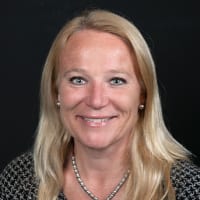
Dominique Zwinkels is the Executive Manager of the People that Deliver Initiative (PtD). She is an international development professional with 23 years of experience in managing programs with a focus on health supply chain management, livelihood, food security and nutrition. Since 2016 Dominique has been responsible for the management and overall performance of PtD, a broad coalition of governments and international, regional and national organizations working together to raise the profile of the health supply chain workforce as a key strategic area of health systems. Prior to PtD she worked for ten years on the HIV/AIDS supply chain for John Snow International (JSI) at the Partnership for Supply Chain Management (PFSCM), which procured and delivered essential lifesaving medicines and related commodities to HIV/AIDS programs around the world.
Dominique also has experience working with multilateral development agencies; the International Food Policy Research Institute, the Inter-American Development Bank, and the International Finance Corporation. She has both an MBA in International Business Administration and a Master’s degree in Nutrition. She is fluent in English, Spanish and Dutch. As a native of The Netherlands and having lived in Latin America (Peru, Colombia, and Venezuela) and Washington, DC, she is now based at UNICEF Supply Division.
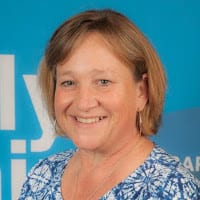
Jenny Froome is passionate about how supply chain management affects our lives on every level. Her original and now current profession is event management – the epitome of a well-honed supply chain. After many years working as COO of SAPICS – the professional body of supply chain management in South Africa she realized the importance of shining the light on the supply chains of Africa. Managing events such as the SAPICS annual conference, the People that Deliver Global Indaba, and the Africa Supply Chain Excellence Awards have truly allowed Jenny to combine her skills, knowledge, and community. Jenny’s lived all over the world and has settled in South Africa with her husband and many 4 legged friends while her sons are scattered around the world. Connect with Jenny on LinkedIn.
